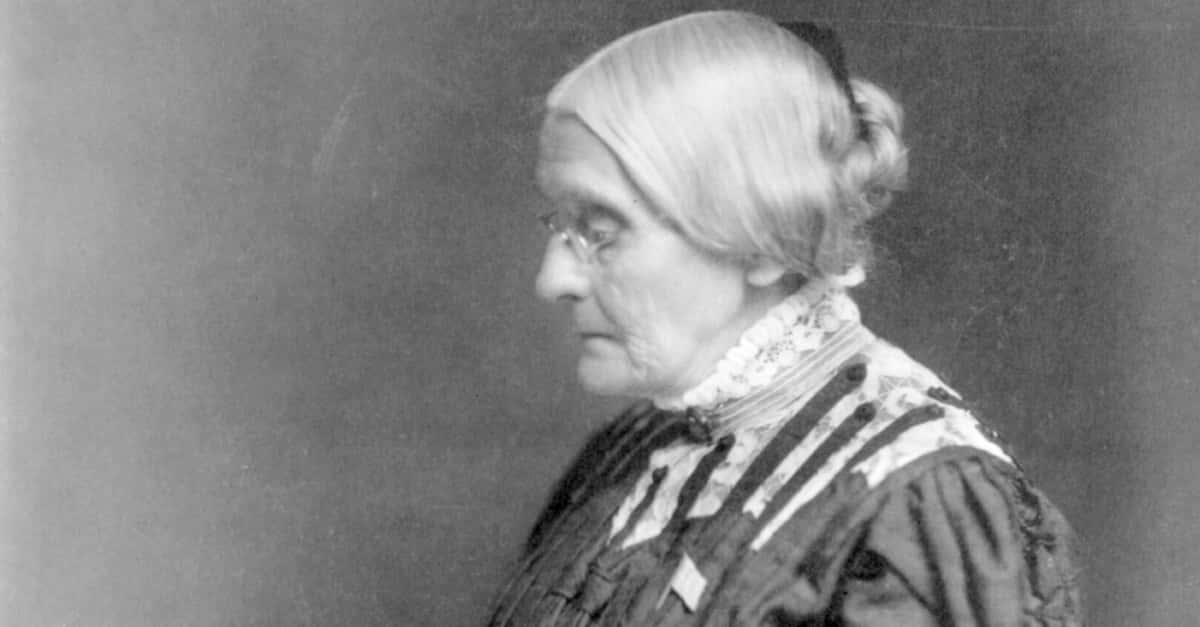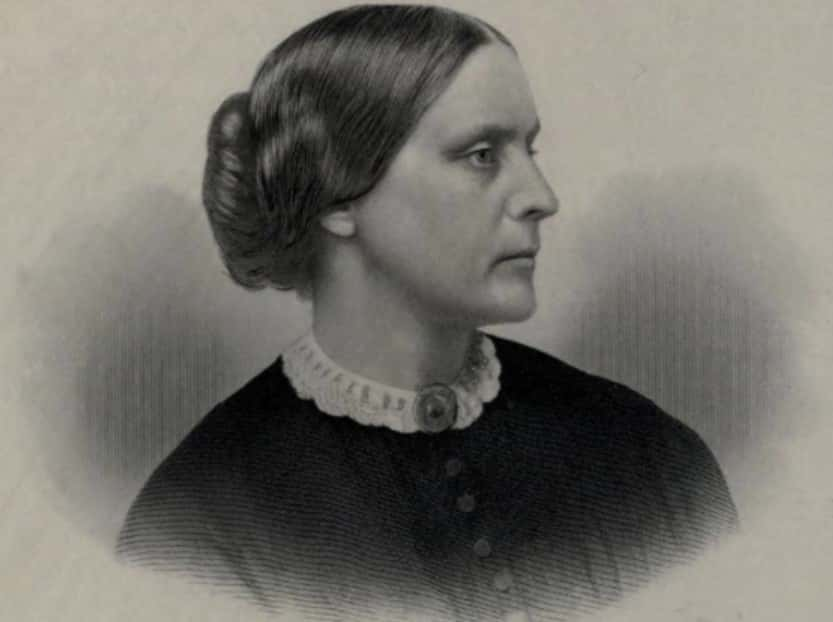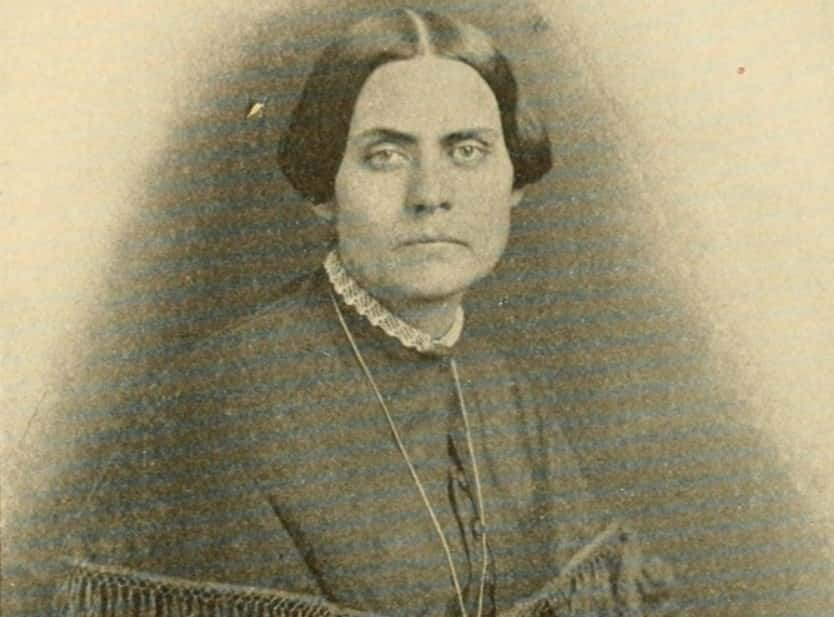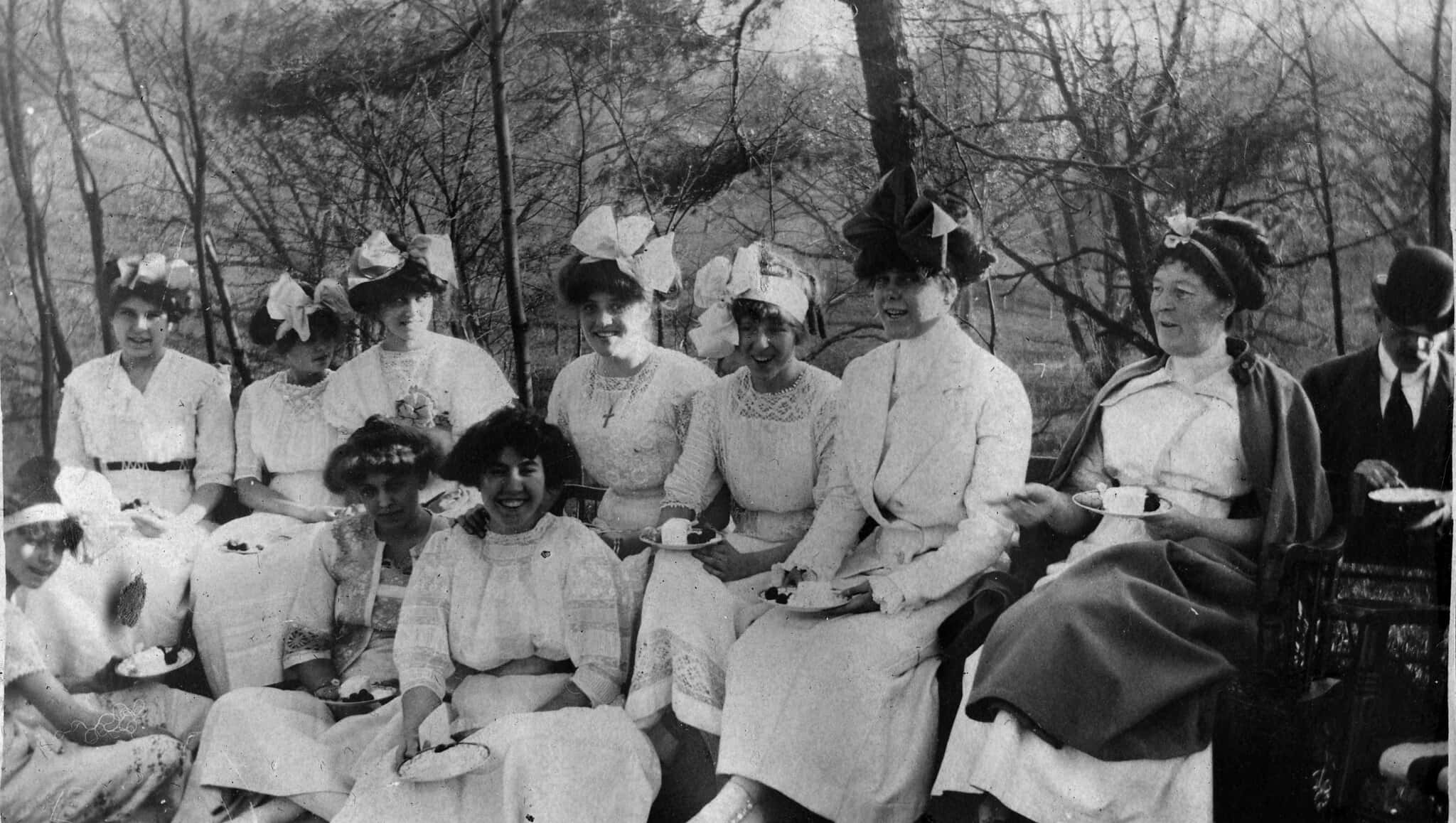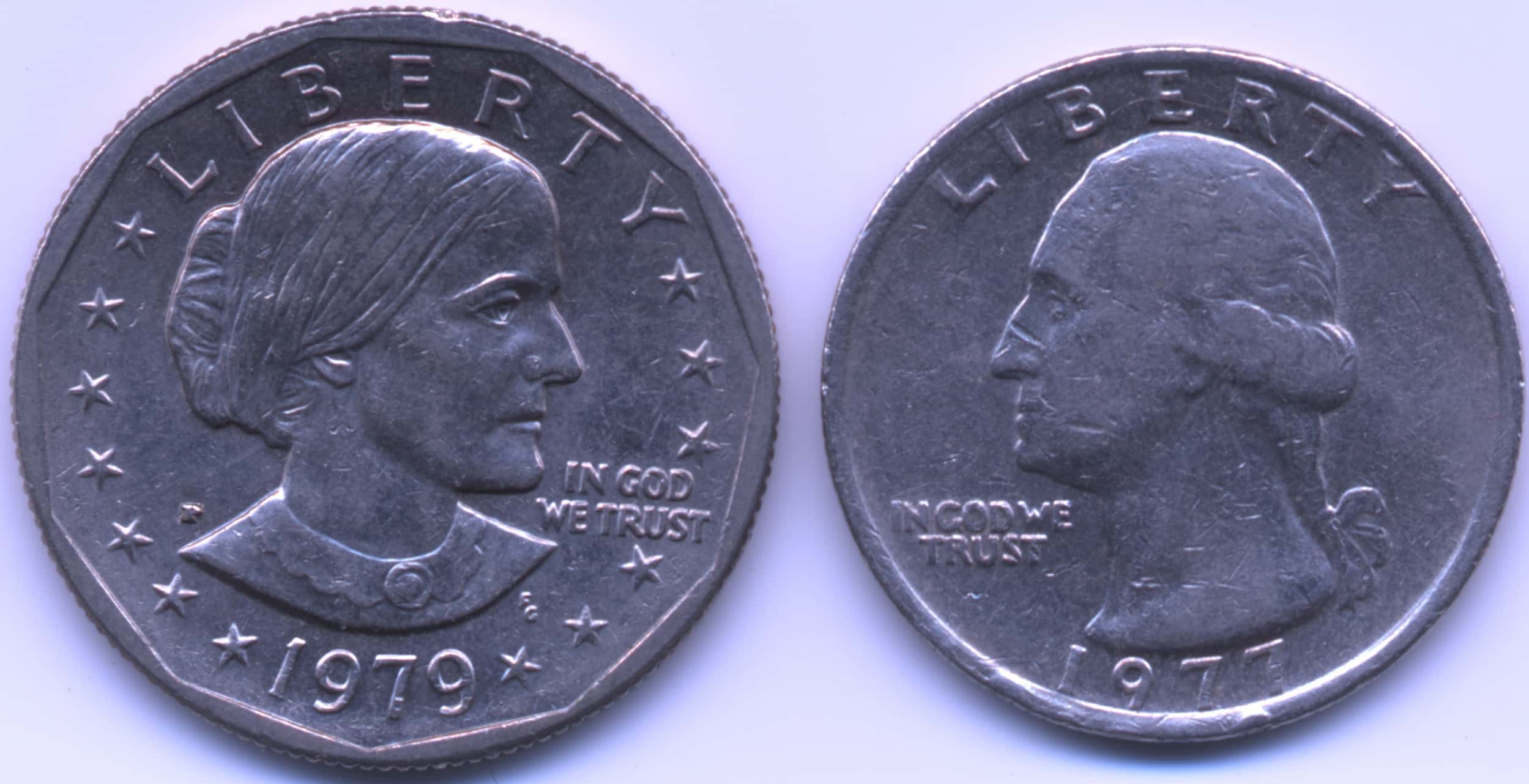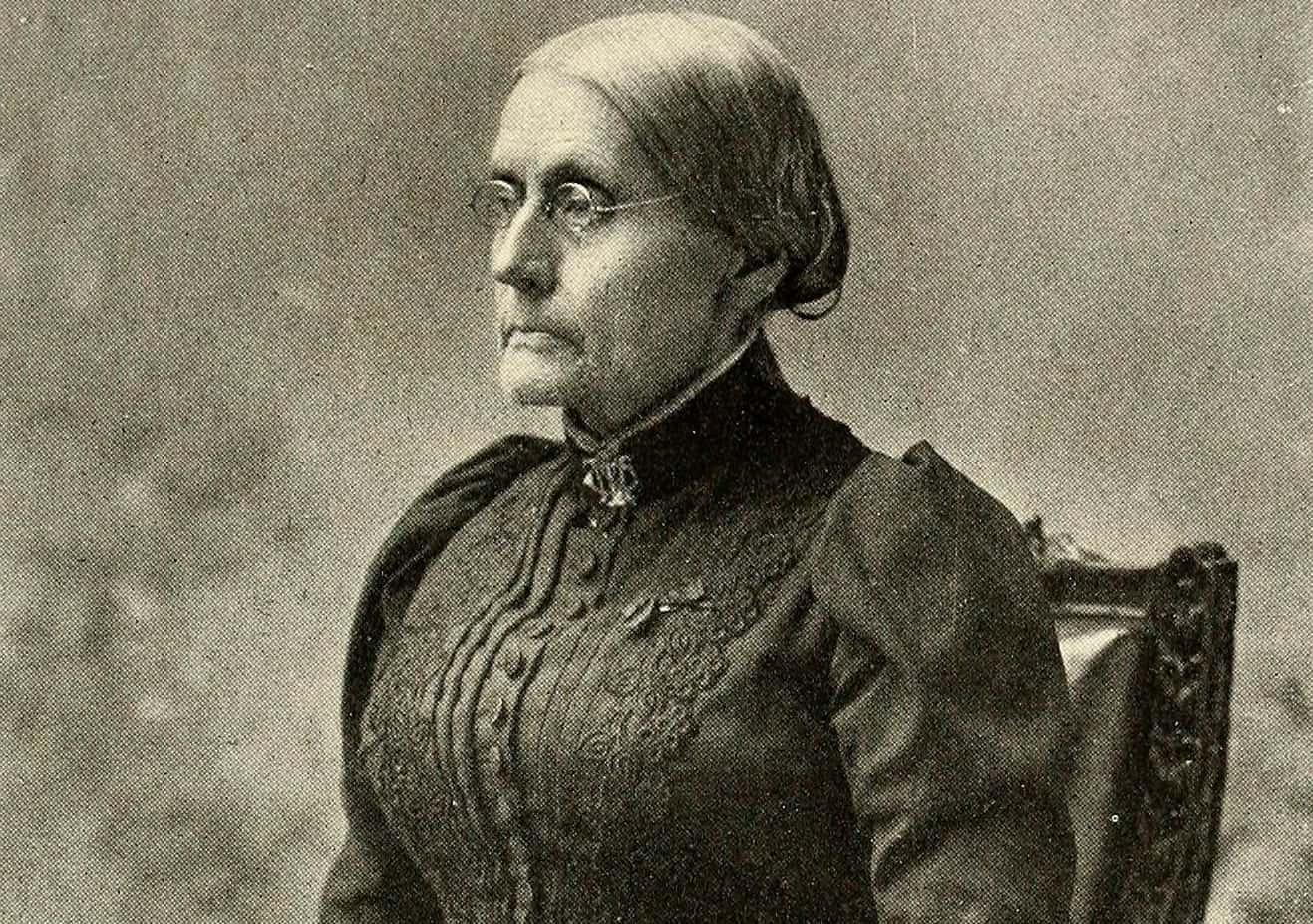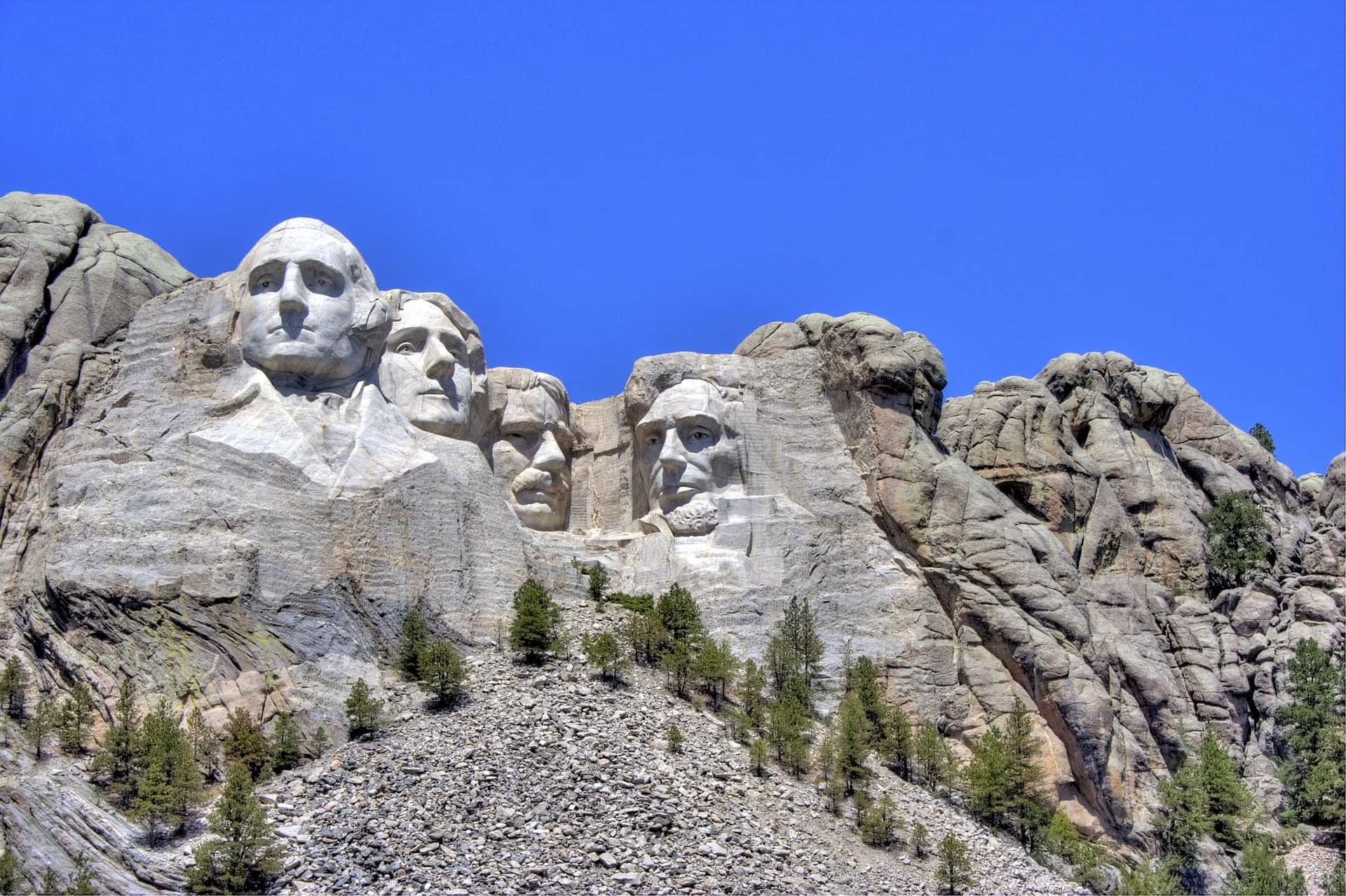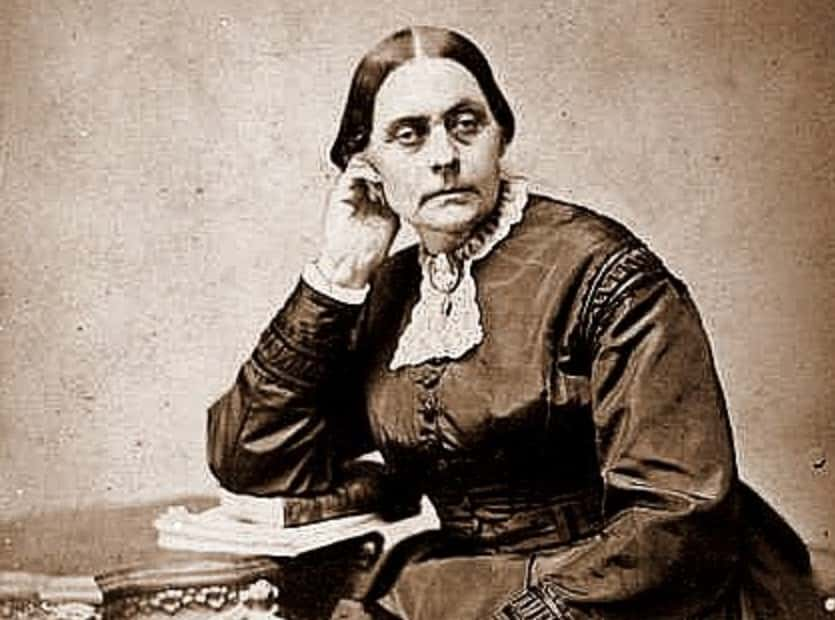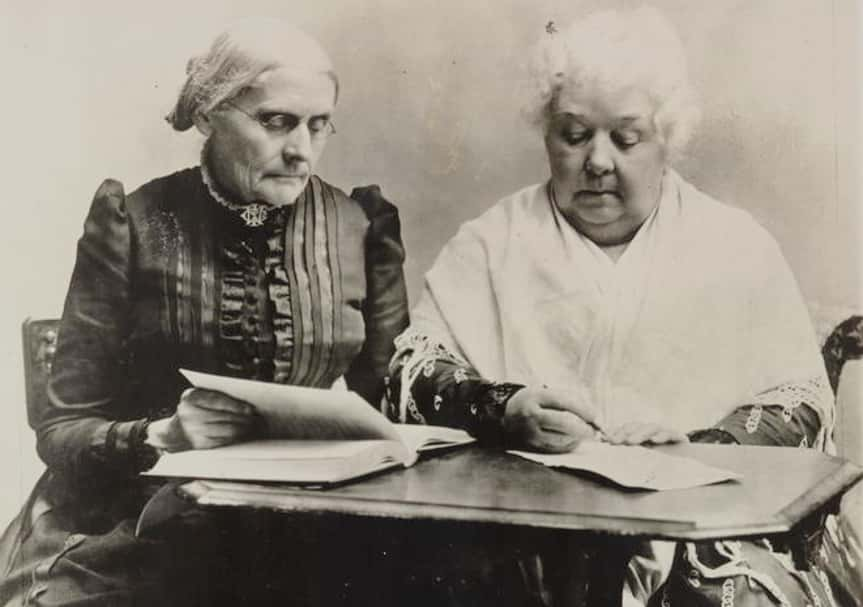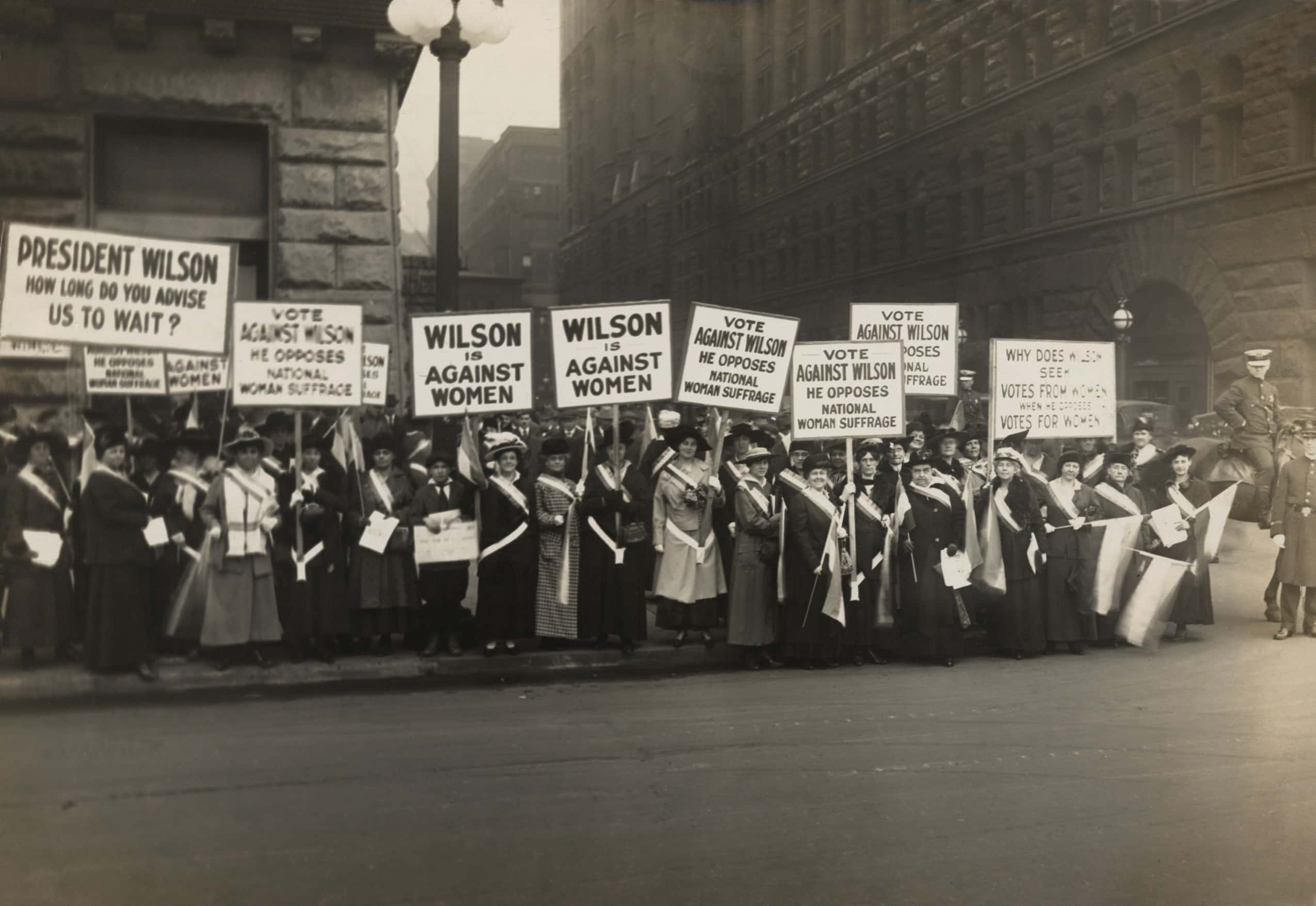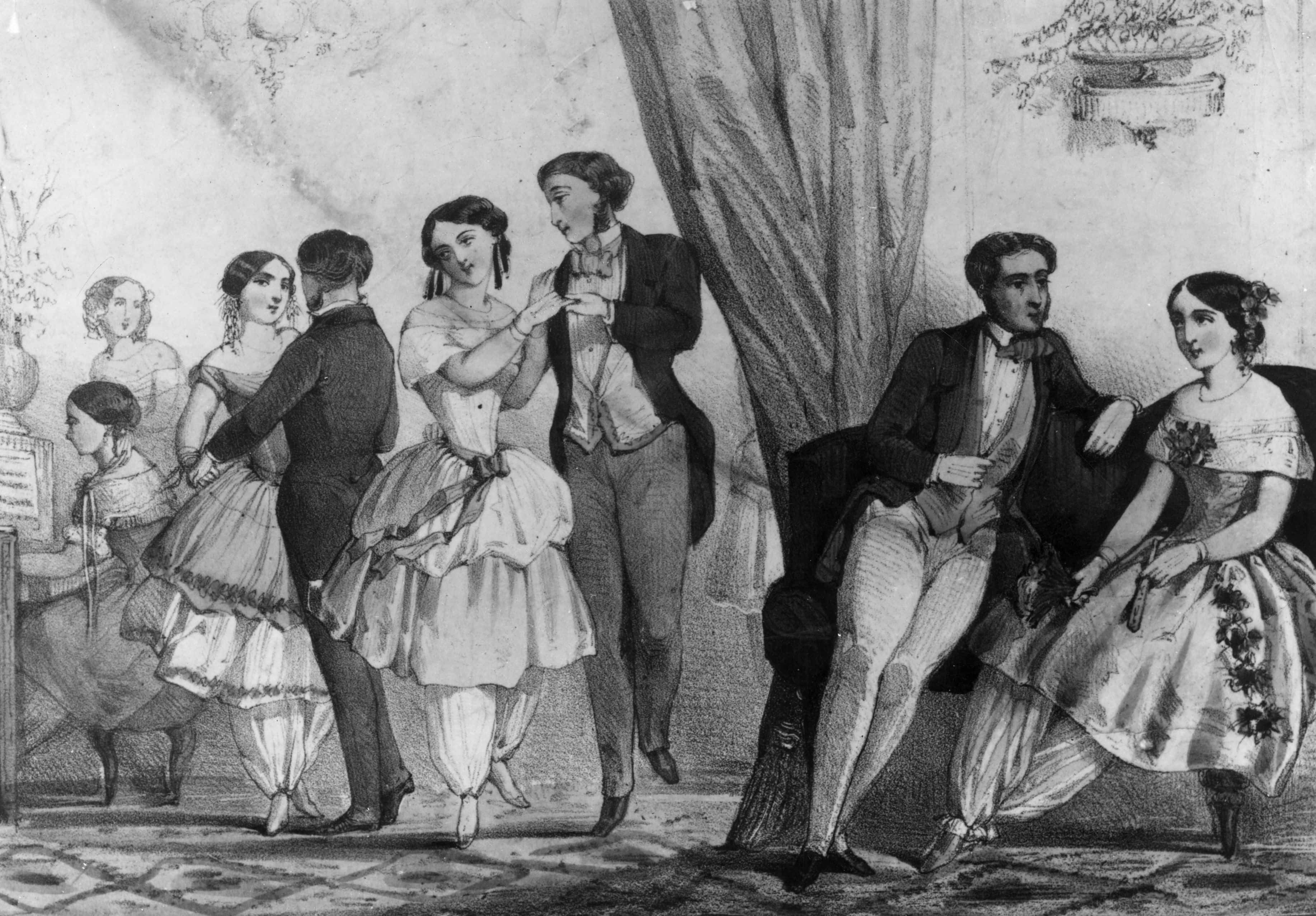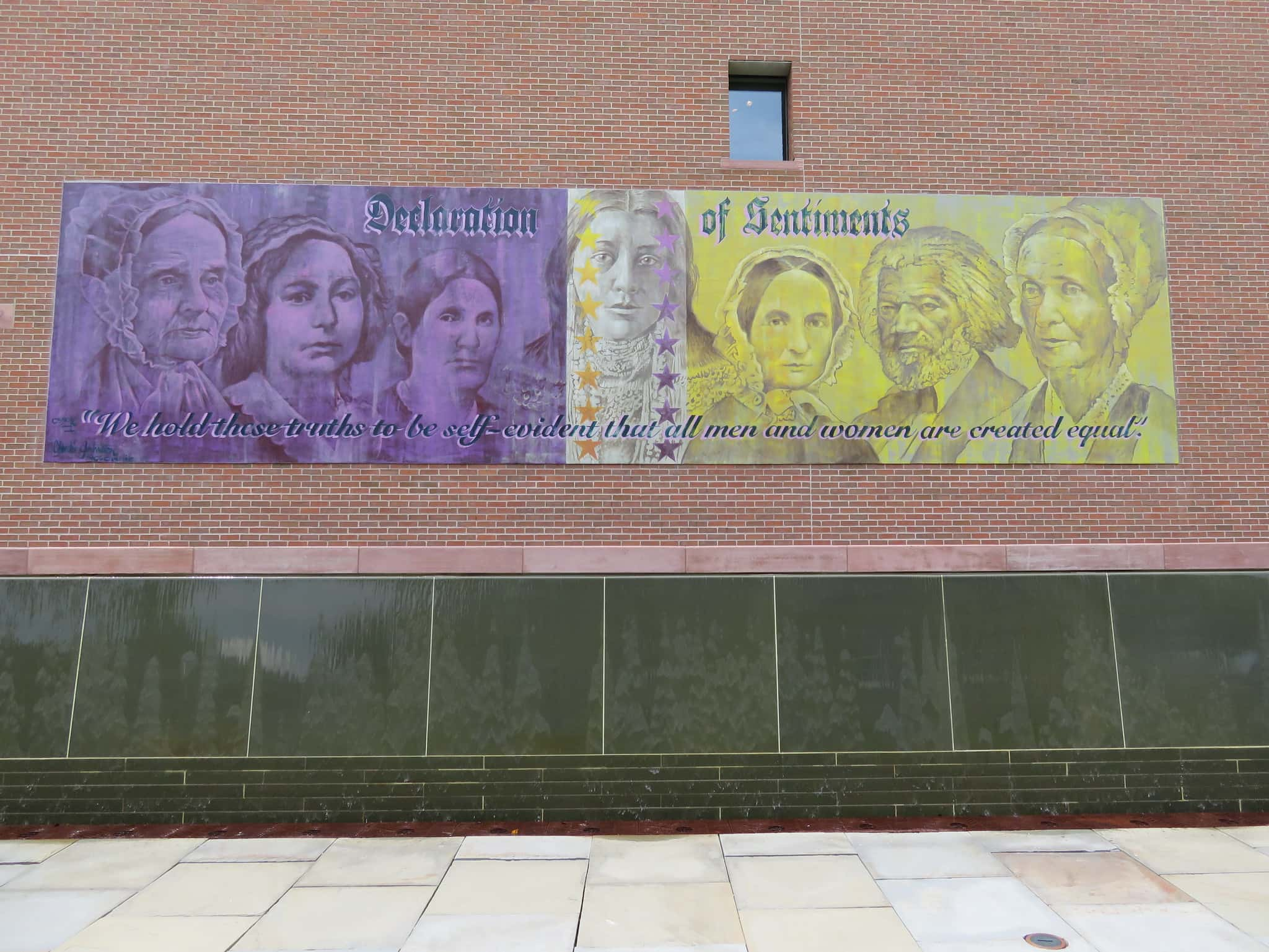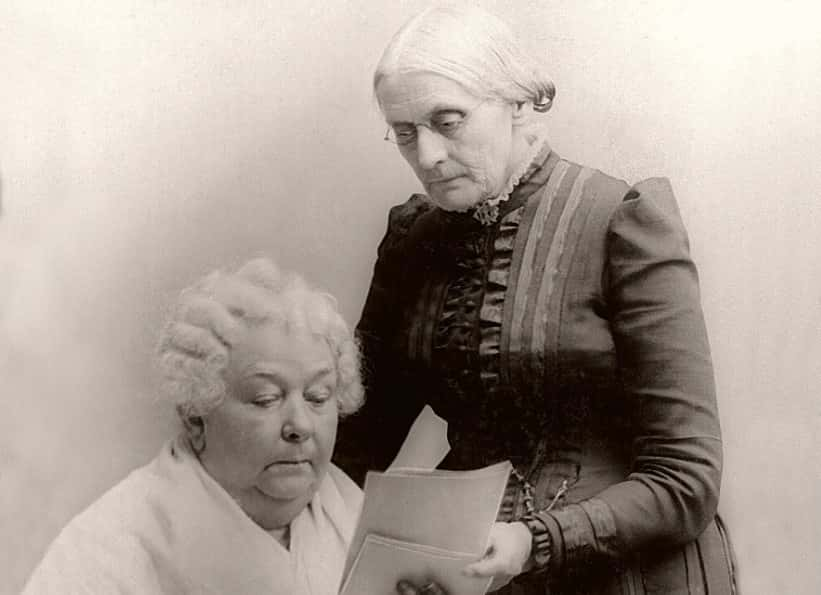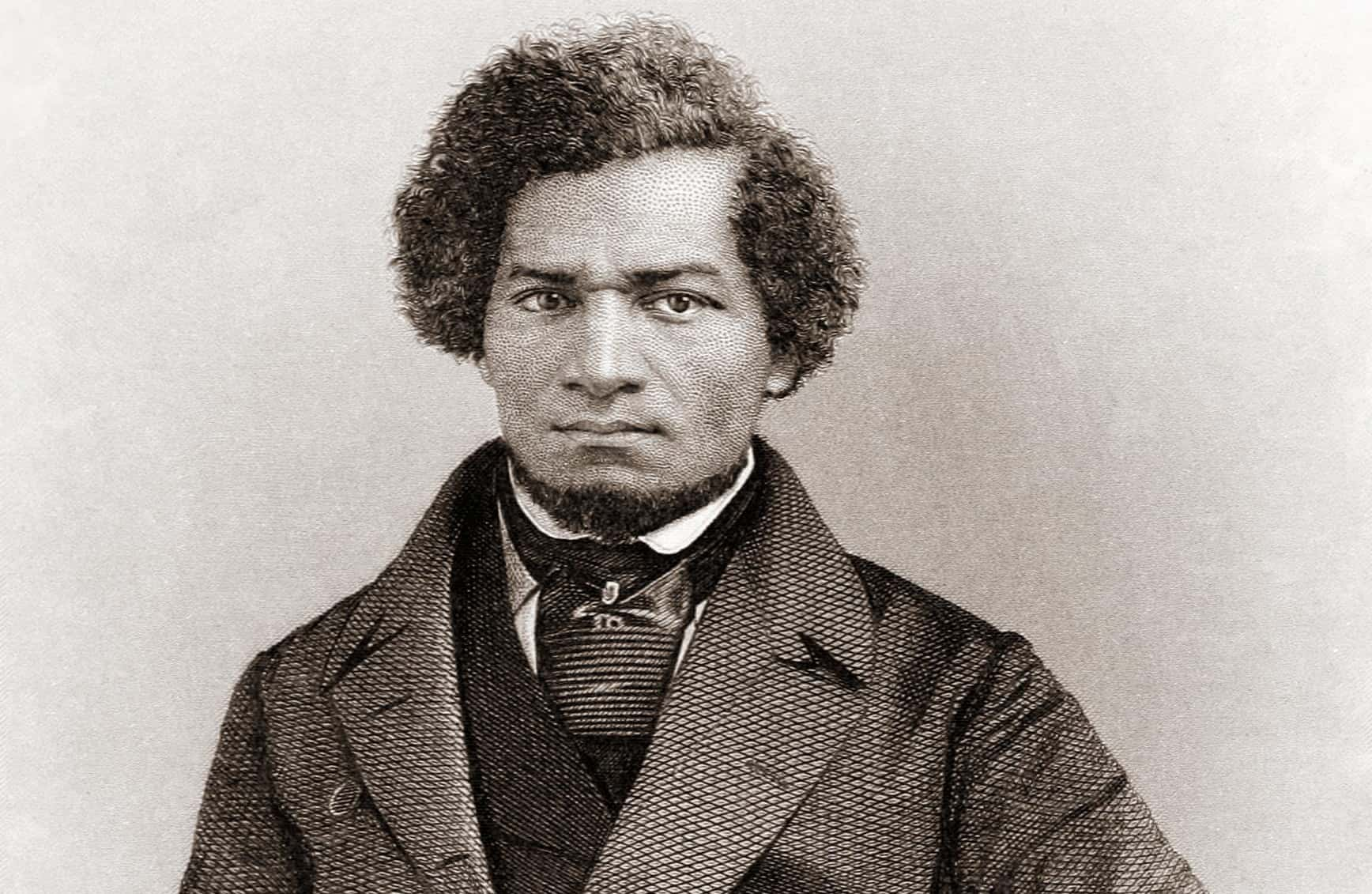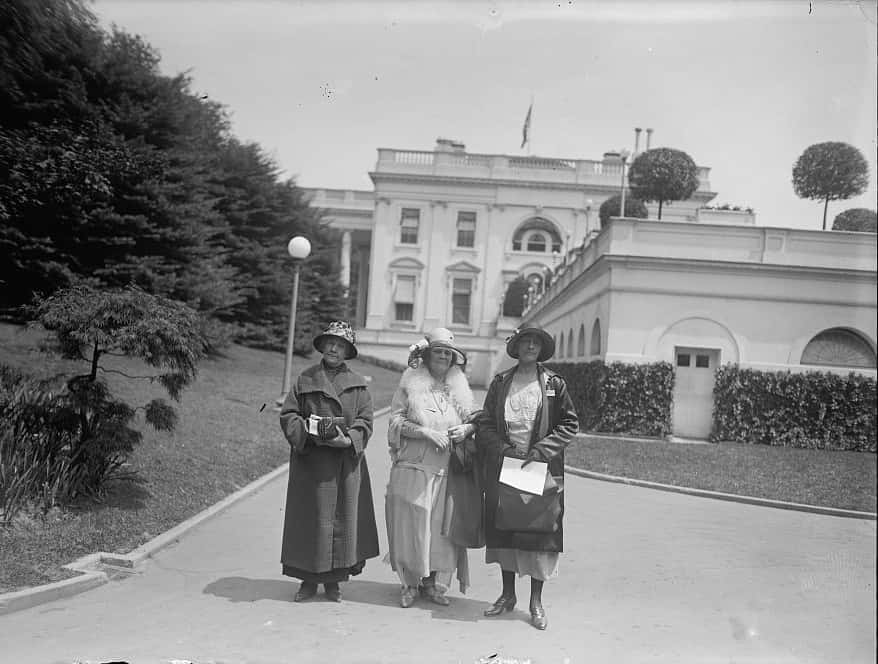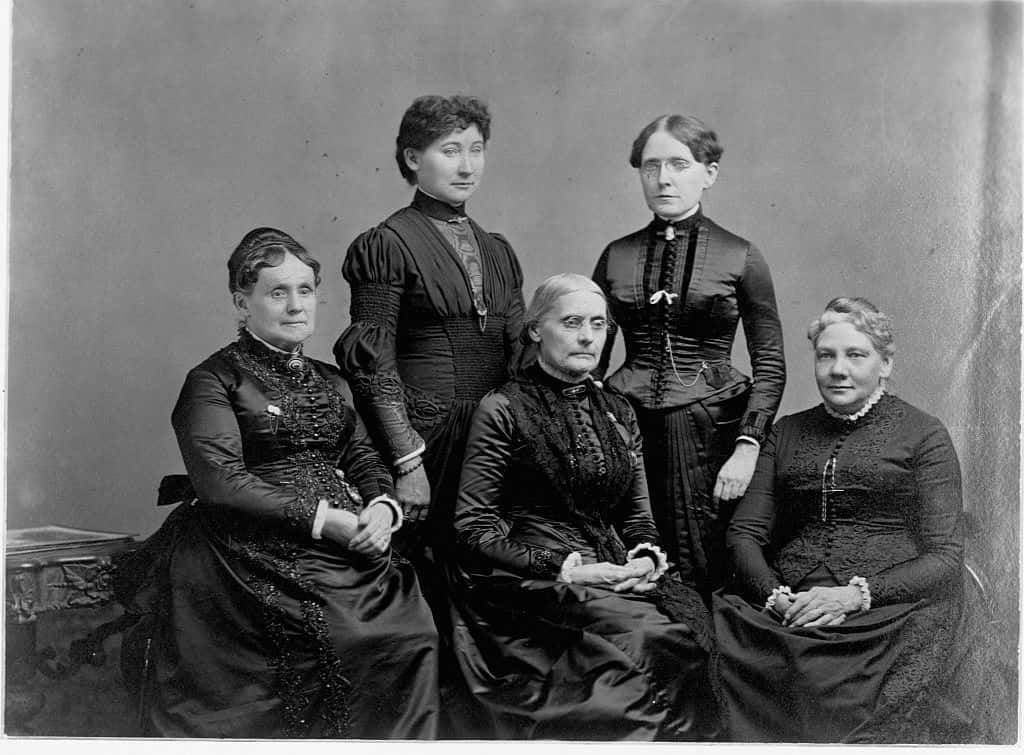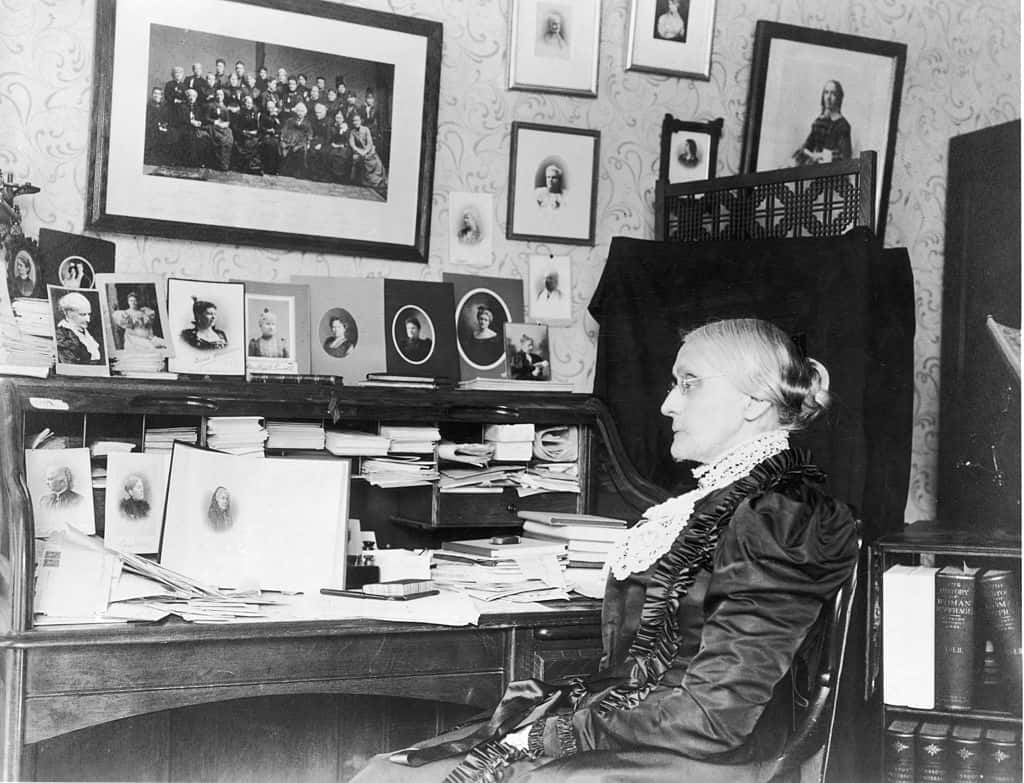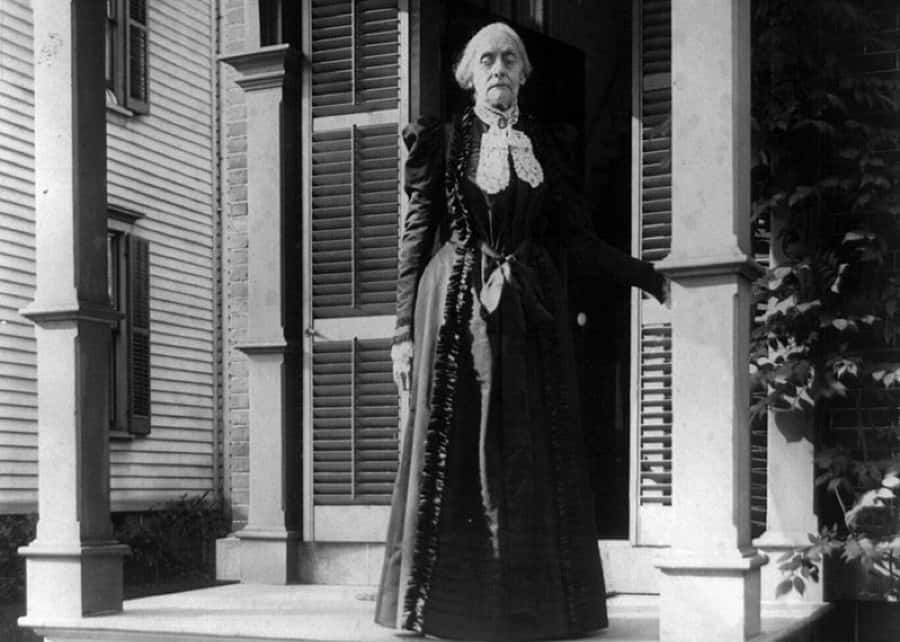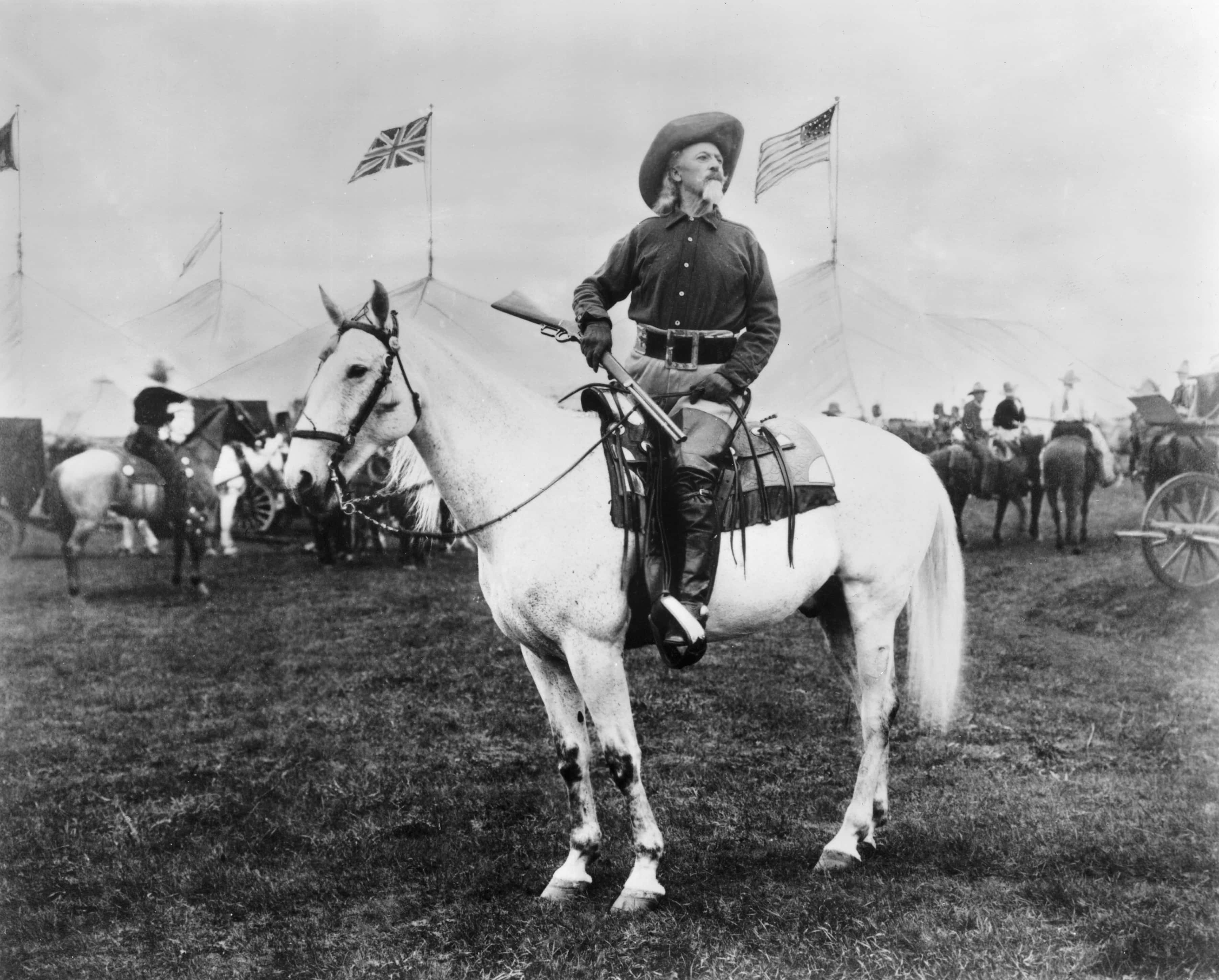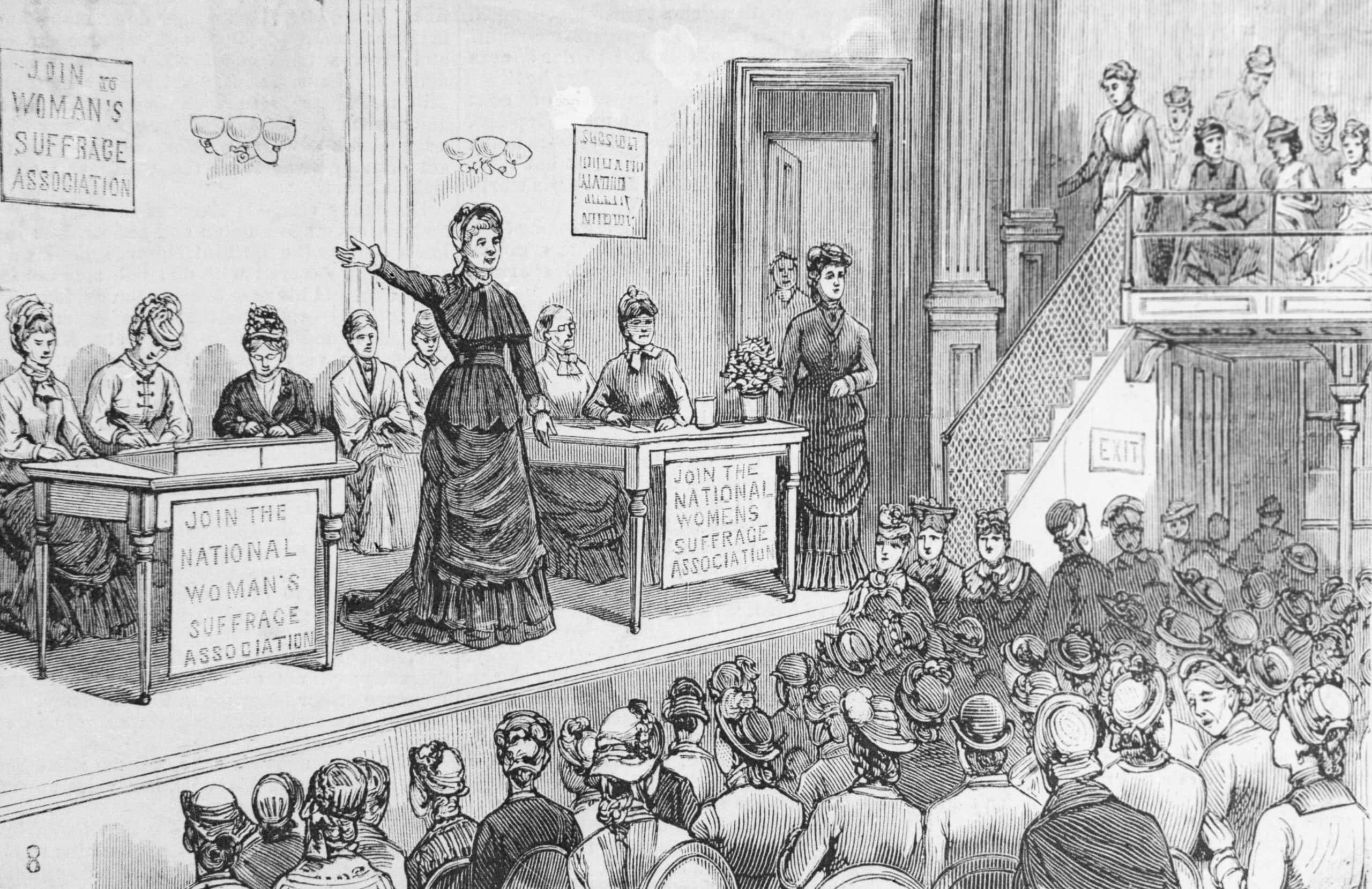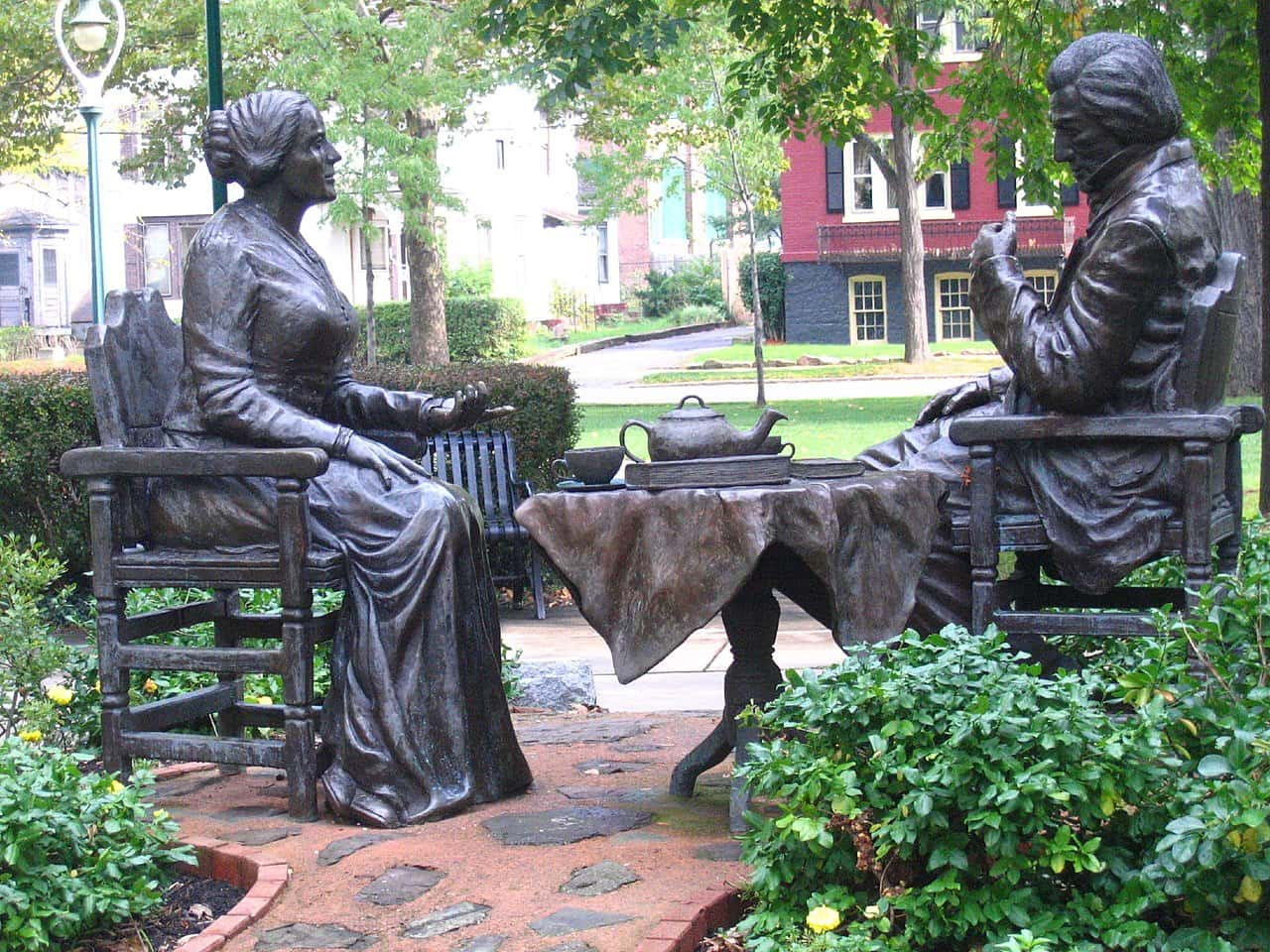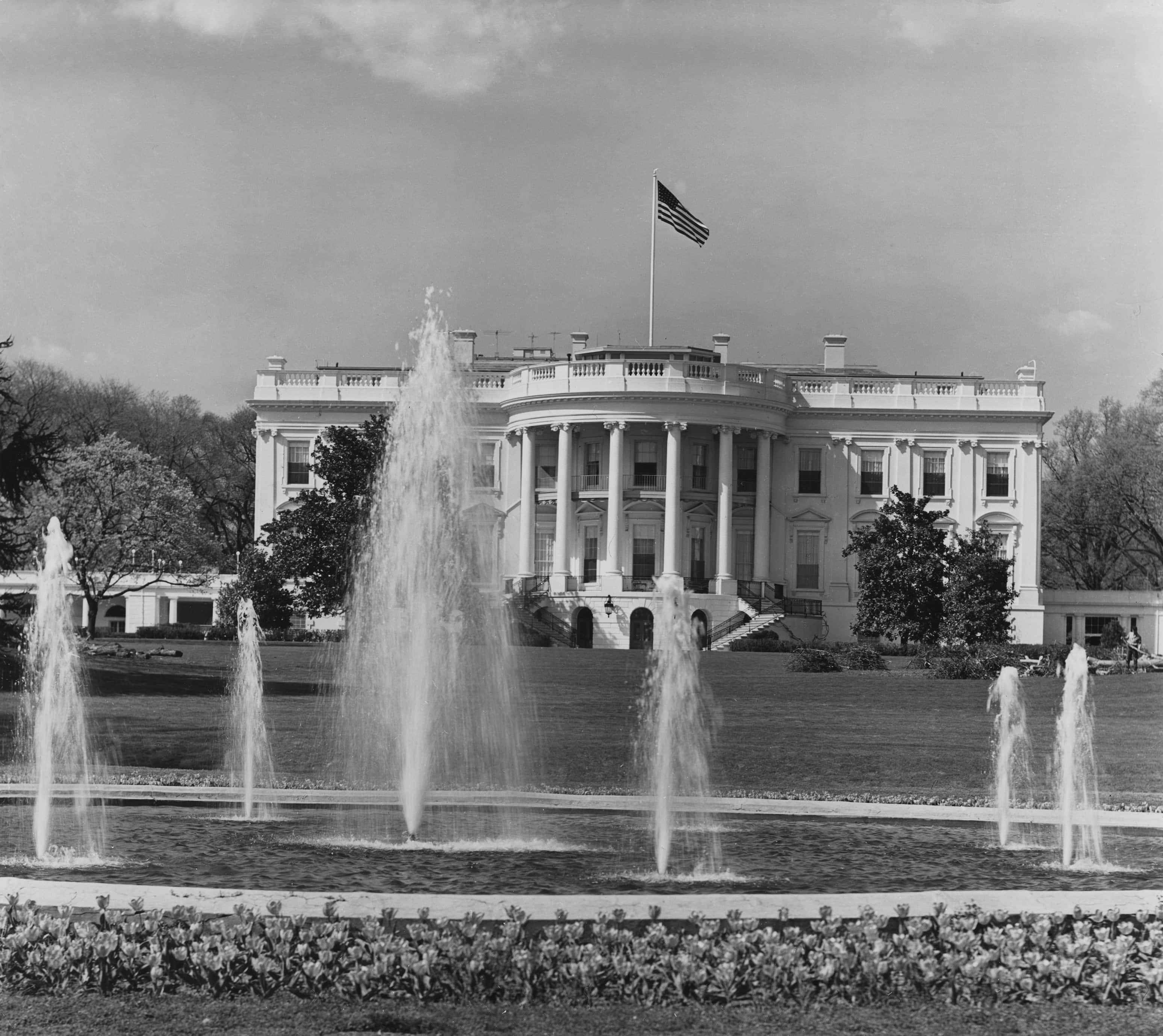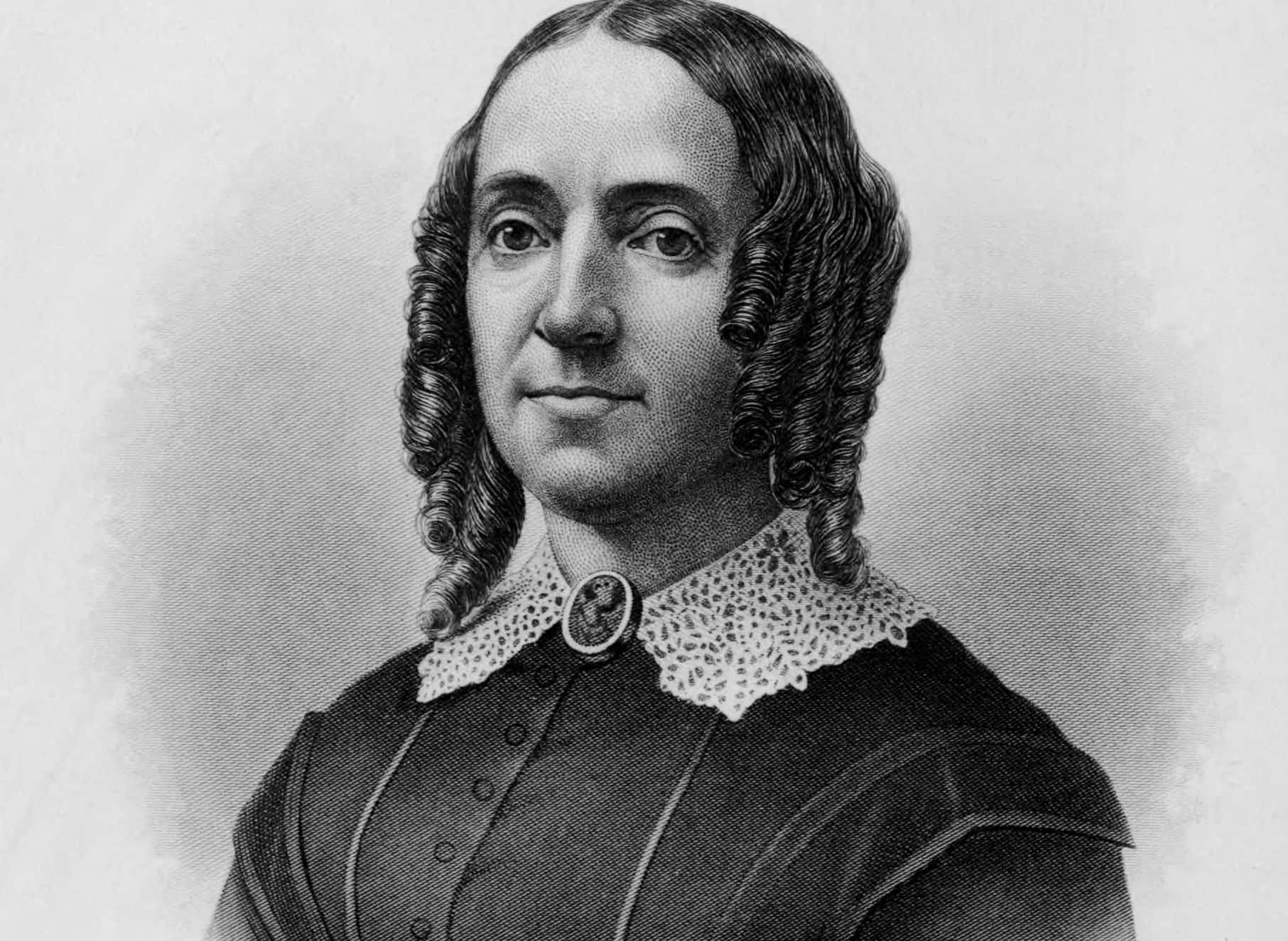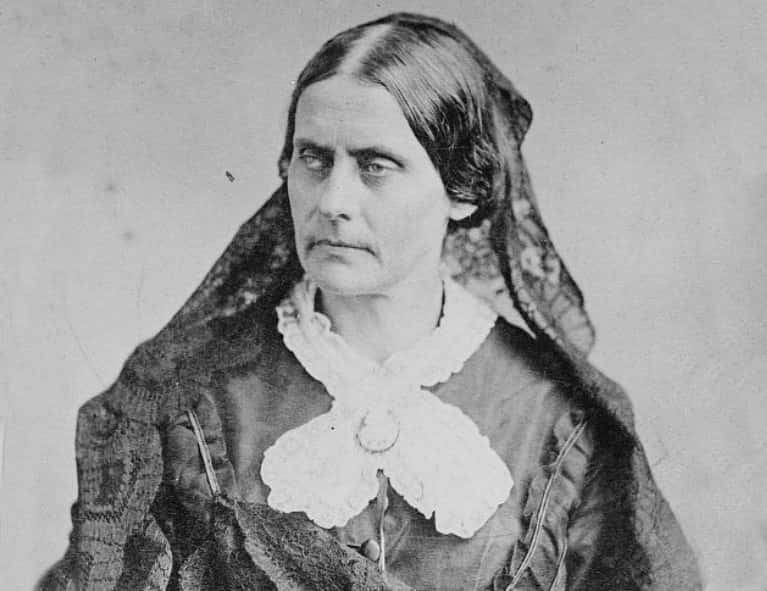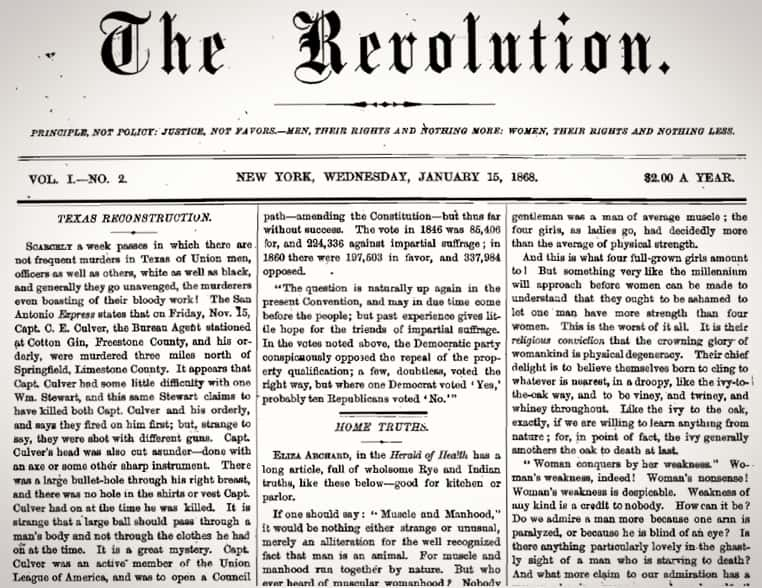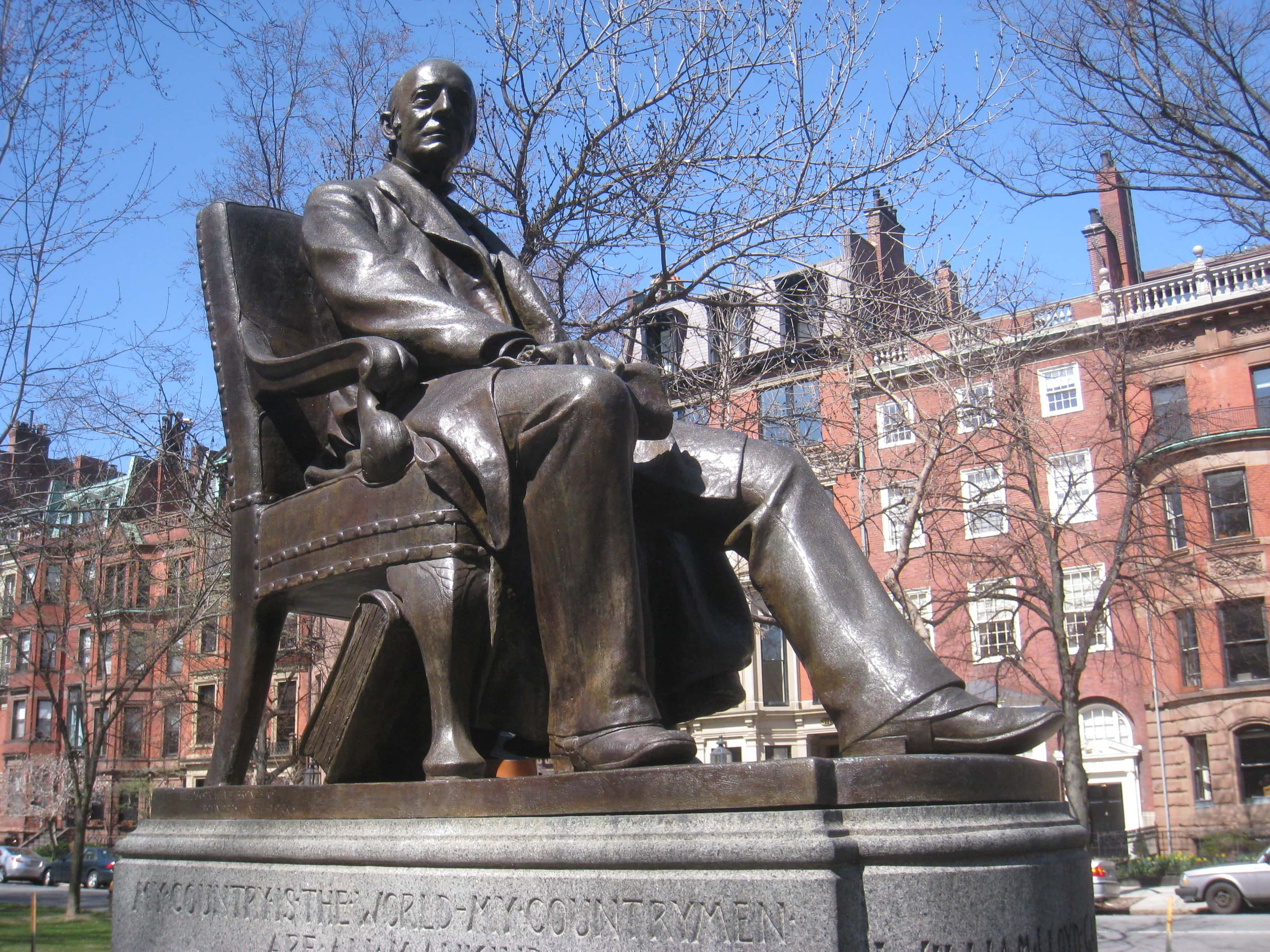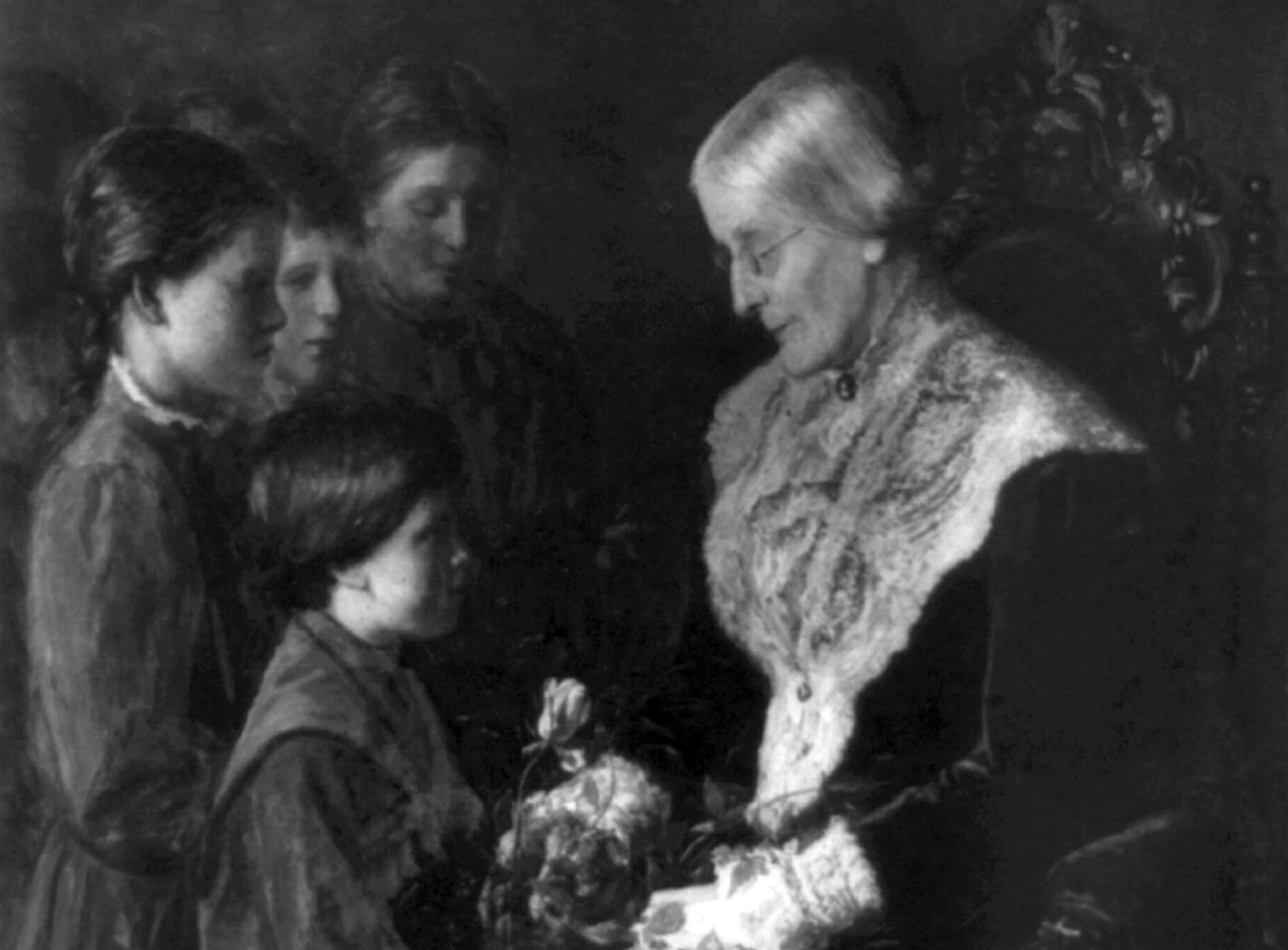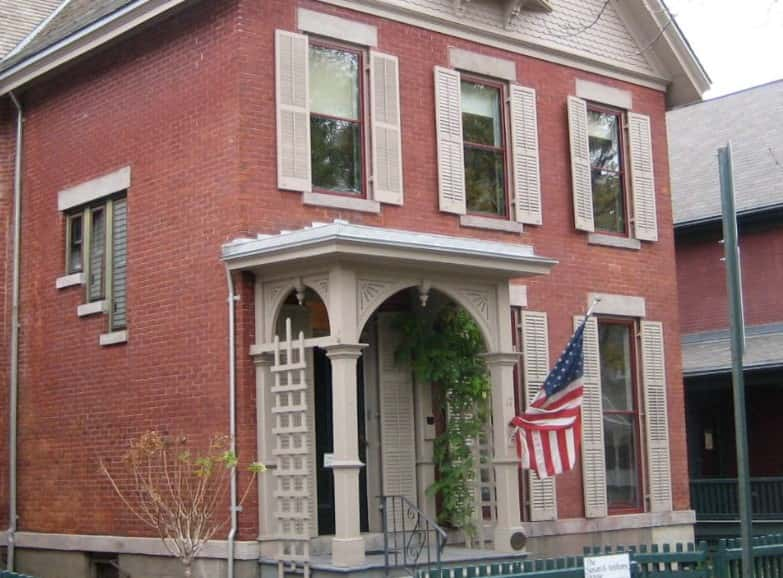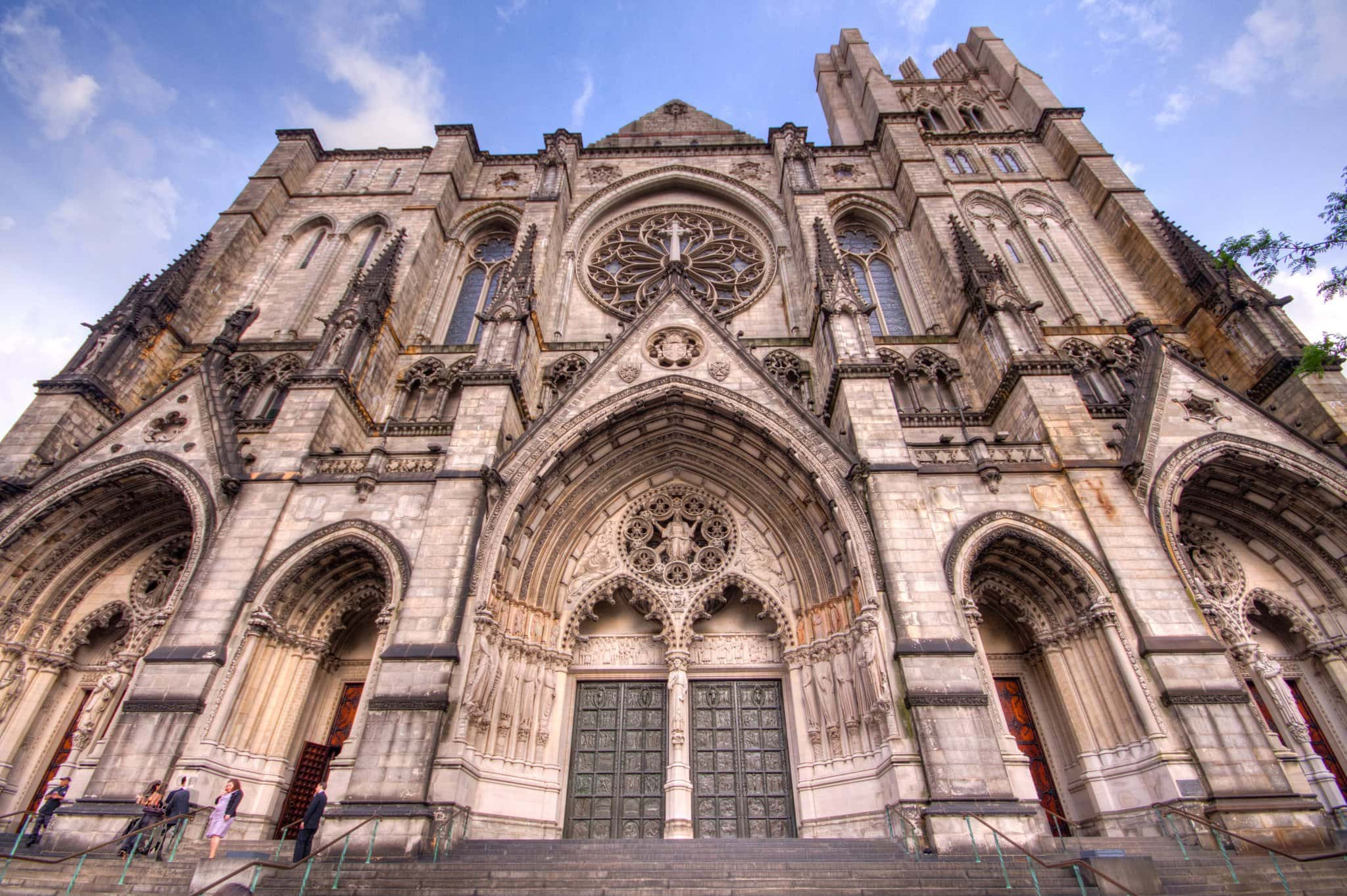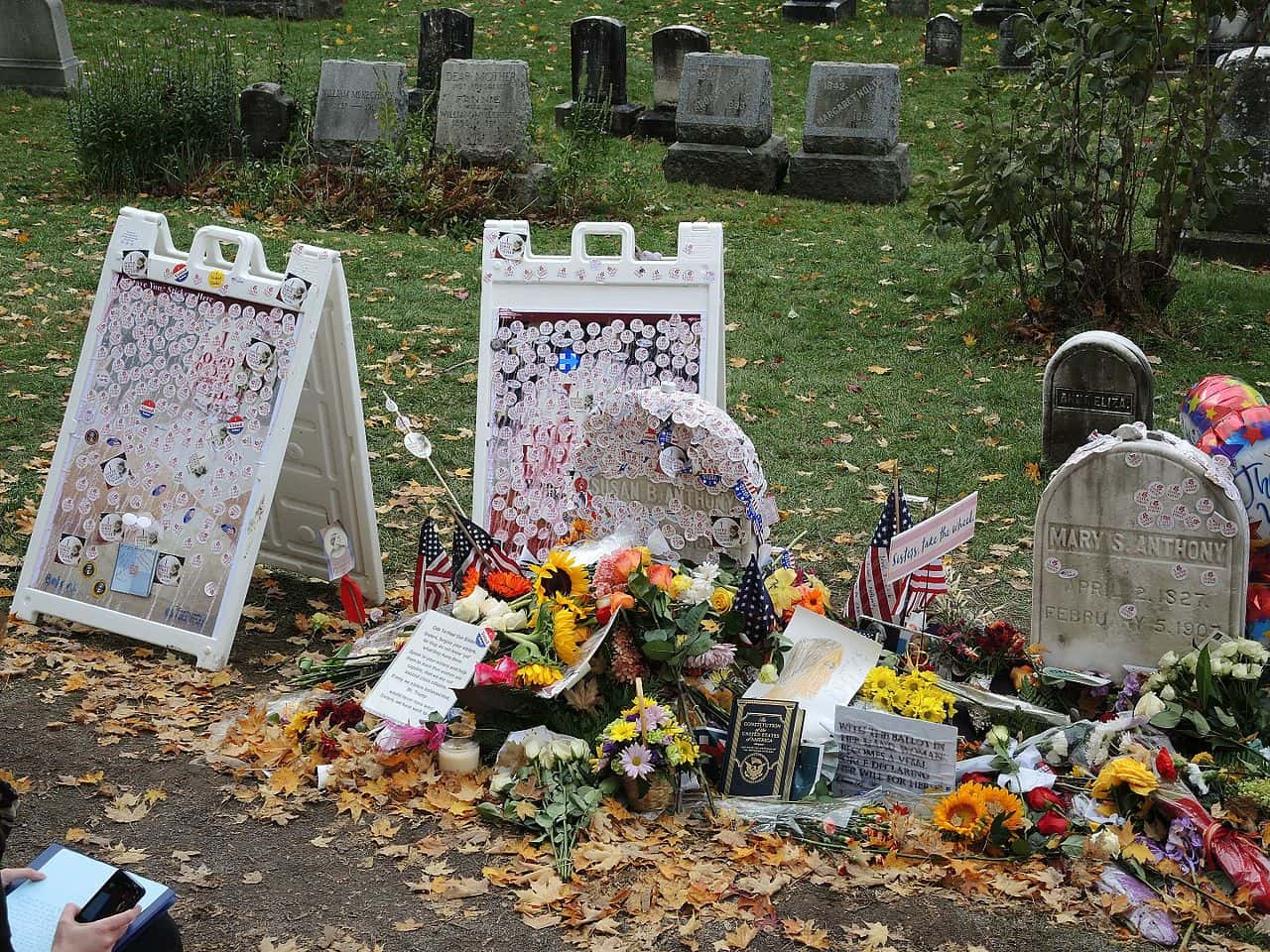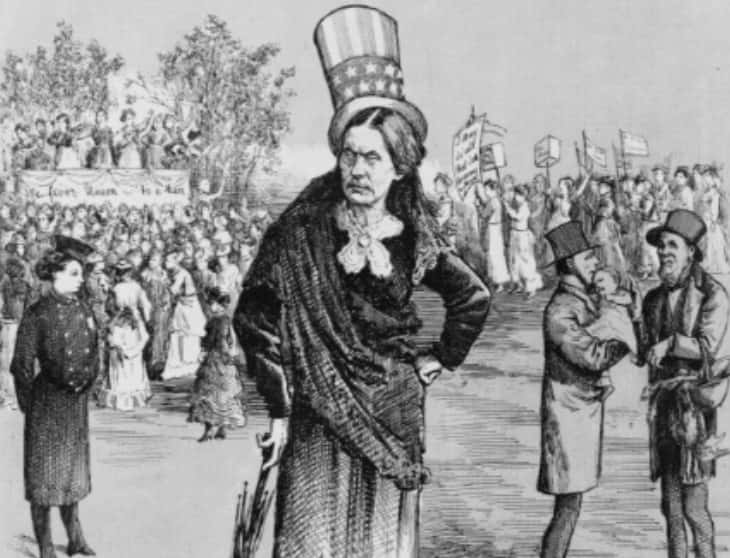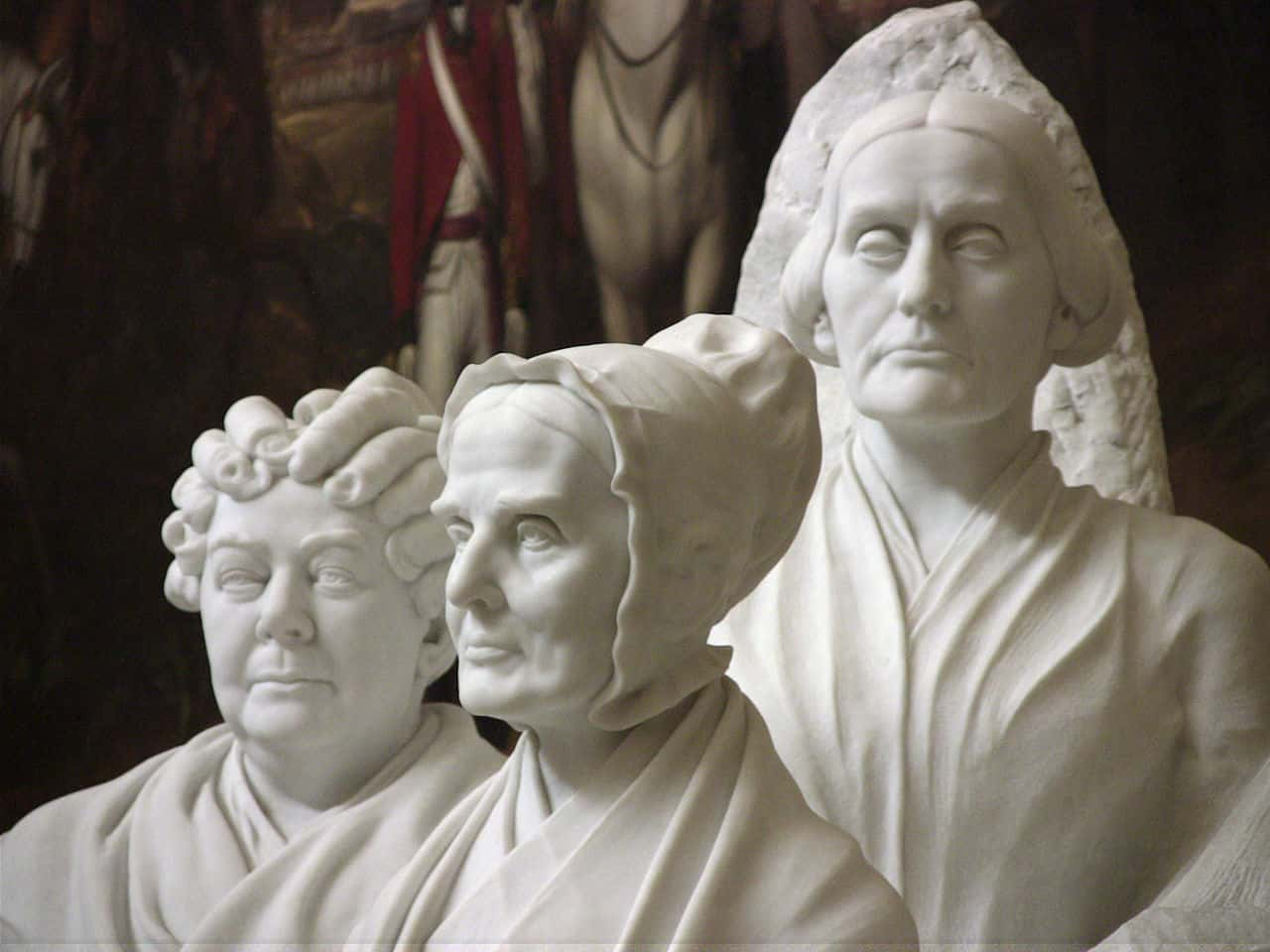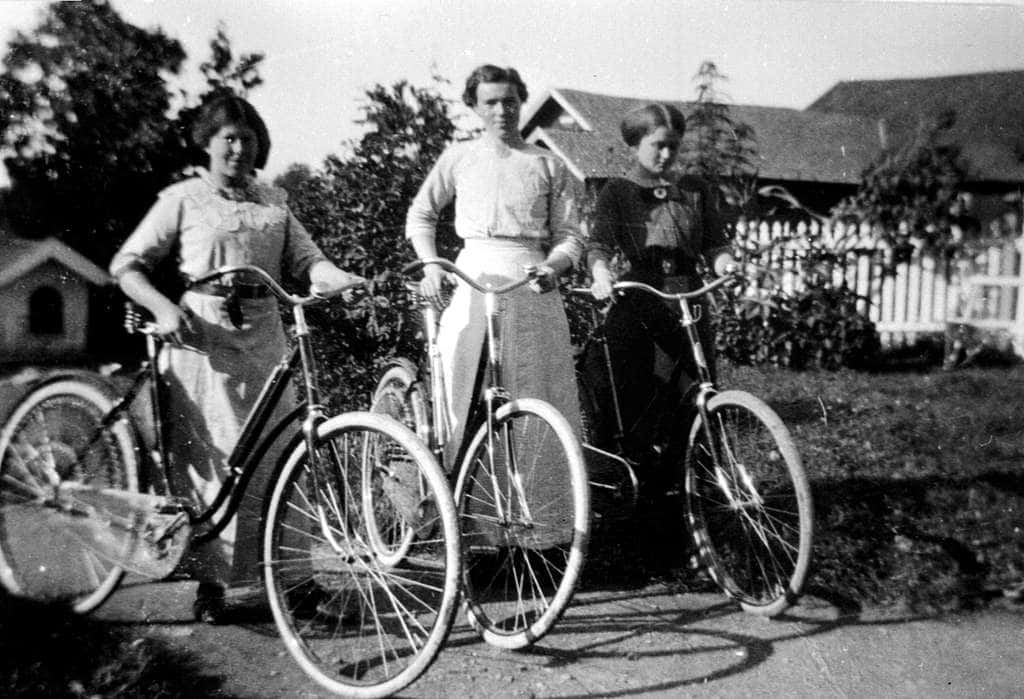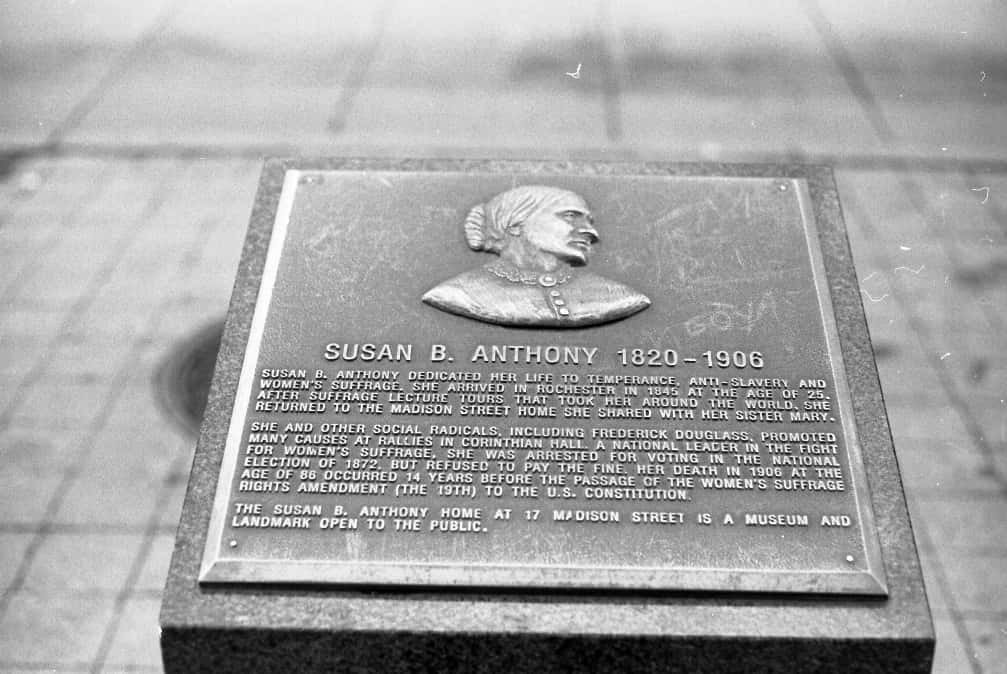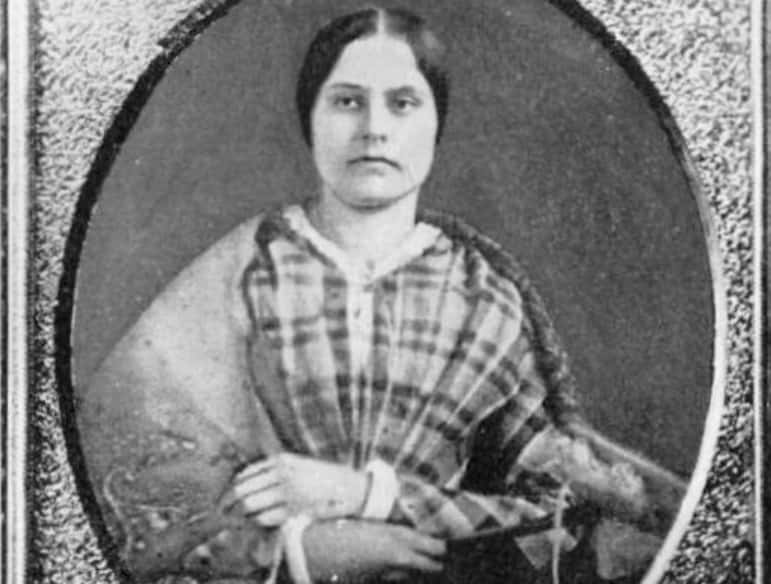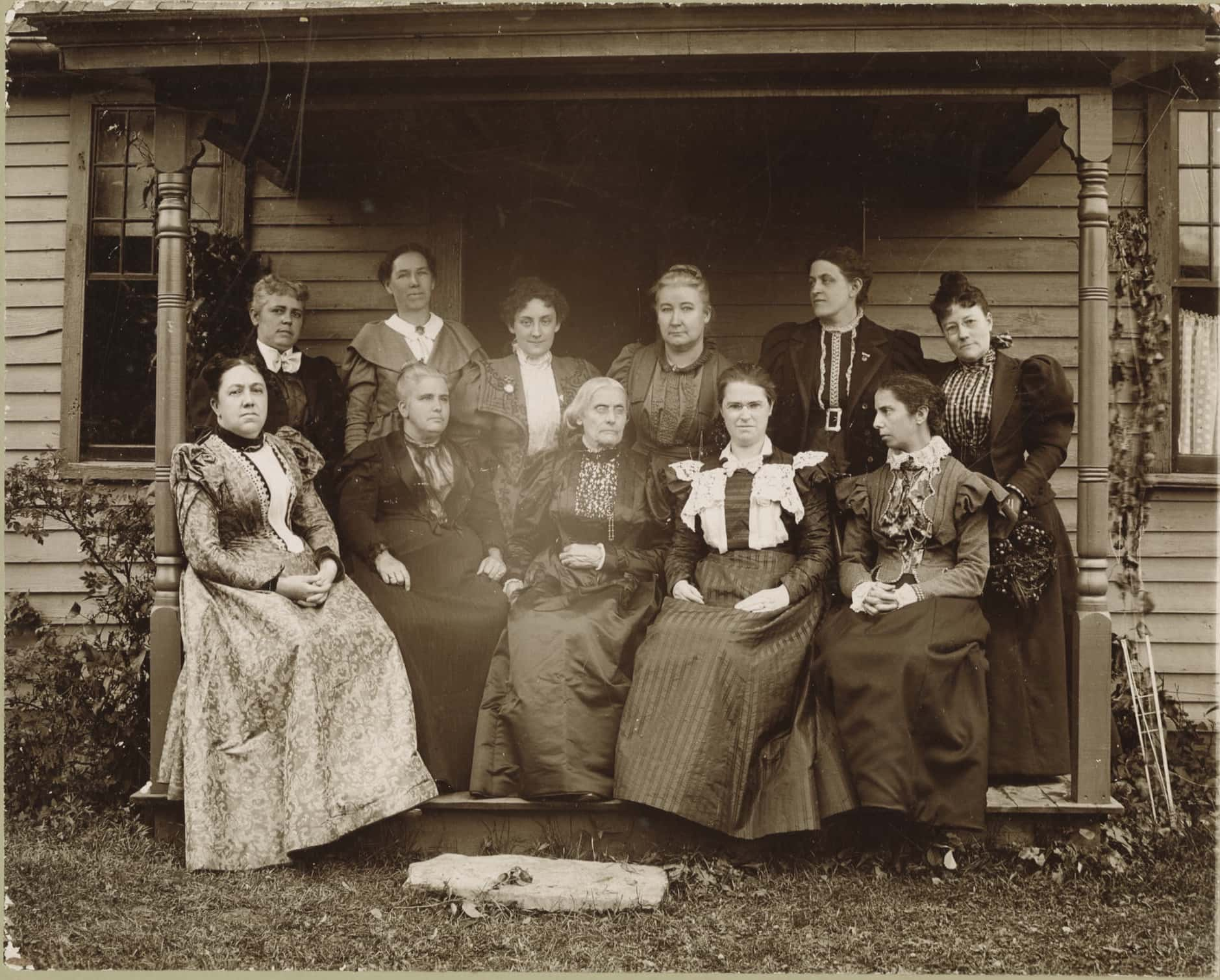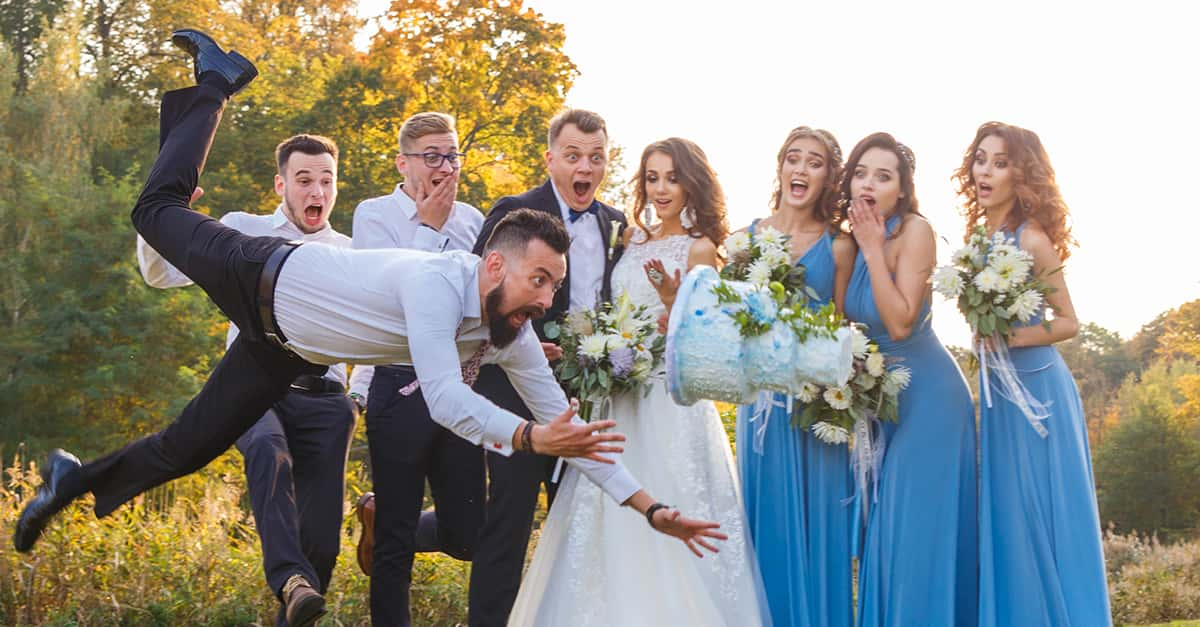“A few days ago someone said to me that every woman should stand with bared head before Susan B. Anthony. 'Yes,' I answered, 'and every man as well.”—Clara Barton
Few people are as closely associated with a specific cause as Susan B. Anthony has been associated with the fight for women’s rights. Her long life was utterly devoted to improving women’s place in American society, and by extension, the rest of the world. Of course, though Anthony’s legacy has been writ in the stone of American history, the passing of time causes people to forget the more specific facts of her life. We combed through them and now present a short list of those facts for your consumption!
Facts About Susan B. Anthony
1. Origin Story
Anthony was born on February 15, 1820, in Adams, Massachusetts. She was the second oldest of seven children born to Daniel Anthony and Lucy Read.
2. Determined Dad
Growing up, Anthony was raised in a Quaker household, though her father had married a Methodist woman. This reason, coupled with the fact that he allowed a dance academy to run out of his house (gasp!), led to Anthony’s father being disowned by the Quaker community. Despite that, though, he continued to attend their meetings. Maybe he was just impossible to keep away?
3. Is “Too Quaker” a Thing?
Anthony was sent to a Quaker boarding school in Philadelphia when she was 17 years old. The experience, however, was rather stressful for her. Given how her mother’s Methodism had always tempered Anthony’s Quaker upbringing, being introduced to the unfiltered experience proved a very sour time in Anthony’s life.
4. On the Money!
In 1979, Anthony became the first woman to be honored with having her image placed on a US coin. The Susan B. Anthony dollar coin was minted from 1979 to 1981.
5. Two Reasons to Cheer
Anthony’s day of birth—February 15—has been declared a commemorative holiday in the US. Susan B. Anthony Day not only celebrates Anthony’s life, but also the history of the women’s suffrage movement.
6. Why Not One More?
Incredibly, Anthony very nearly had her head added to Mt. Rushmore! In 1937, Congress openly debated the idea, even as Lincoln and Roosevelt’s heads were still being carved into the mountain. The only thing stopping them was the budget. Since they were still trying to finish the last two heads, plans for a fifth were cut short.
7. Thanks, Papa!
Anthony’s father was very much an equal-opportunity sort of man when it came to his children. He taught business principles and assigned responsibilities to all his kids, regardless of their sex. These lessons would prove highly useful to Anthony when she became an adult.
8. The Start of a Beautiful Friendship
Anthony met Elizabeth Cady Stanton in 1851. Stanton was another figure in the women’s rights movement, and she proved to be one of the most important people in Anthony’s life. The two of them would work together in pushing the movement forward, and it was reported by biographers years later that they spent more time together than with anyone else in their lives.
 Wikimedia Commons, Billy Hathorn
Wikimedia Commons, Billy Hathorn
9. Now That’s a Good Friend
One reason why Anthony and Elizabeth Cady Stanton were so inseparable and why they made such a good team was because they complemented each other’s skillsets so well. Anthony was an excellent organizer, but she hated writing, something that the well-read Stanton excelled at. Anthony would even babysit Stanton’s seven children, so Stanton had the chance to write more.

History's most fascinating stories and darkest secrets, delivered to your inbox daily.
10. Family Tradition
Anthony wasn’t the only person in her family who made women’s rights her great cause. Anthony’s parents were both driving forces behind Anthony’s activism. Her sister, Mary, would also work as a school principal while joining Anthony in the cause for women’s rights.
11. Some Things Don’t Change…
Despite her Quaker upbringing, Anthony had an eye for fashion. She was particularly a fan of the Bloomer dress, which shockingly only went down to a woman’s knees (the horror!). Anthony received so much criticism and dismissal for this fashion choice that she gave it up so the debate could return to what she was saying rather than wearing. We’d like to say something positive about how far we’ve come since then, but then again…
12. A Family Outing You’d Hate to Miss
In 1848, the Declaration of Sentiments was drafted, signed, and published, much to the shock and outrage of many in the US. The document directly called out several ways in which women were oppressed in American society, including not being allowed to vote or take jobs traditionally associated with men. Although Anthony herself didn’t sign the Declaration of Sentiments (she wasn’t in town on the day of signing), her parents and sister Mary all did add their signatures to the groundbreaking charter.
13. A Noble Cause
Anthony’s family were very passionate in their anti-slavery cause. One of her brothers, Merritt, would travel to Kansas and join forces with John Brown, the famous anti-abolitionist who turned to violent means while combatting the institution of slavery.
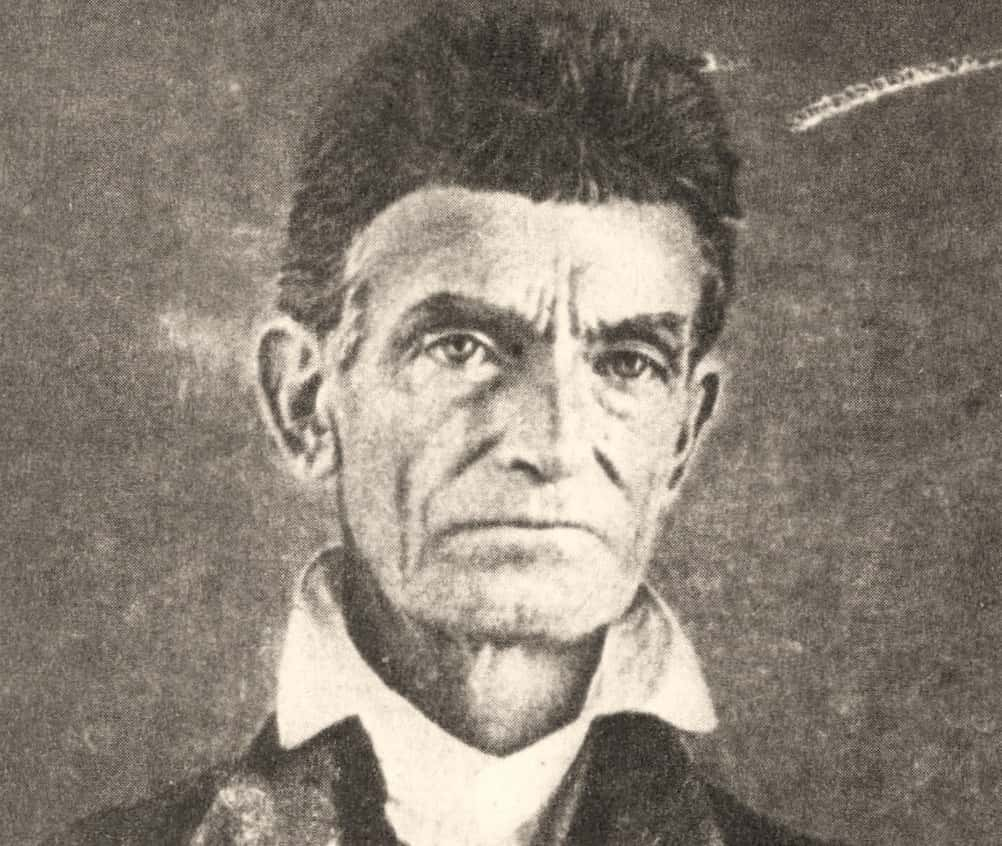 Wikimedia Commons, John Bowles
Wikimedia Commons, John Bowles
14. That's a Lot of Signatures
Along with Elizabeth Cady Stanton, Anthony was a co-founder of the Women’s Loyal National League, which was the first national women’s political organization in American history. This organization wasn’t small fry, either. In 1863, the WLNL assembled more than 400,000 signatures in support of slavery being legally abolished. At that point in time, this was the largest petition drive that the US had ever seen in its history.
15. Pleasure to Meet You!
In the 1840s, Anthony and her family moved to Rochester, NY, and became increasingly involved in activism. It was then that Anthony first met the escaped slave-turned-abolitionist Frederick Douglass. The two of them would remain close friends for the rest of their lives.
16. Women Unite
In 1883, Anthony traveled to Europe in an effort to connect with women’s rights groups internationally. She would spend nine months abroad, discussing the possibility of a single organization where women from all over the world could meet. Anthony would be instrumental in setting up the International Council of Women, which quickly rose to very high prominence. Not long after its foundation, delegates from the ICW would be invited to the White House by President Grover Cleveland.
17. Far-Reaching Accomplishments
To this day, the International Council of Women, as originally set up by Anthony, continues to exist. It isn’t just a symbolic organization, either; the ICW is directly associated with the United Nations.
18. Live Sober
Because men held absolute legal authority over their families, and because alcoholism affected so many men (who would often abuse their families financially, emotionally, or physically), Anthony joined the temperance movement. She was hardly the first person in her family to do so; her Quaker father had shared a similar belief towards alcohol. Anthony would help collect 28,000 signatures for a petition asking to ban the sale of alcohol in the state of New York.
19. On the Road
While Anthony was touring the country during the late 1860s, she was reunited with her old acquaintance, Frederick Douglass. She also became very familiar with Clara Barton, the “Angel of the Battlefield” who had saved so many soldiers’ lives during the Civil War. Anthony and Barton became close friends, with Anthony soon leading Barton to actively campaign for the women’s suffrage movement.
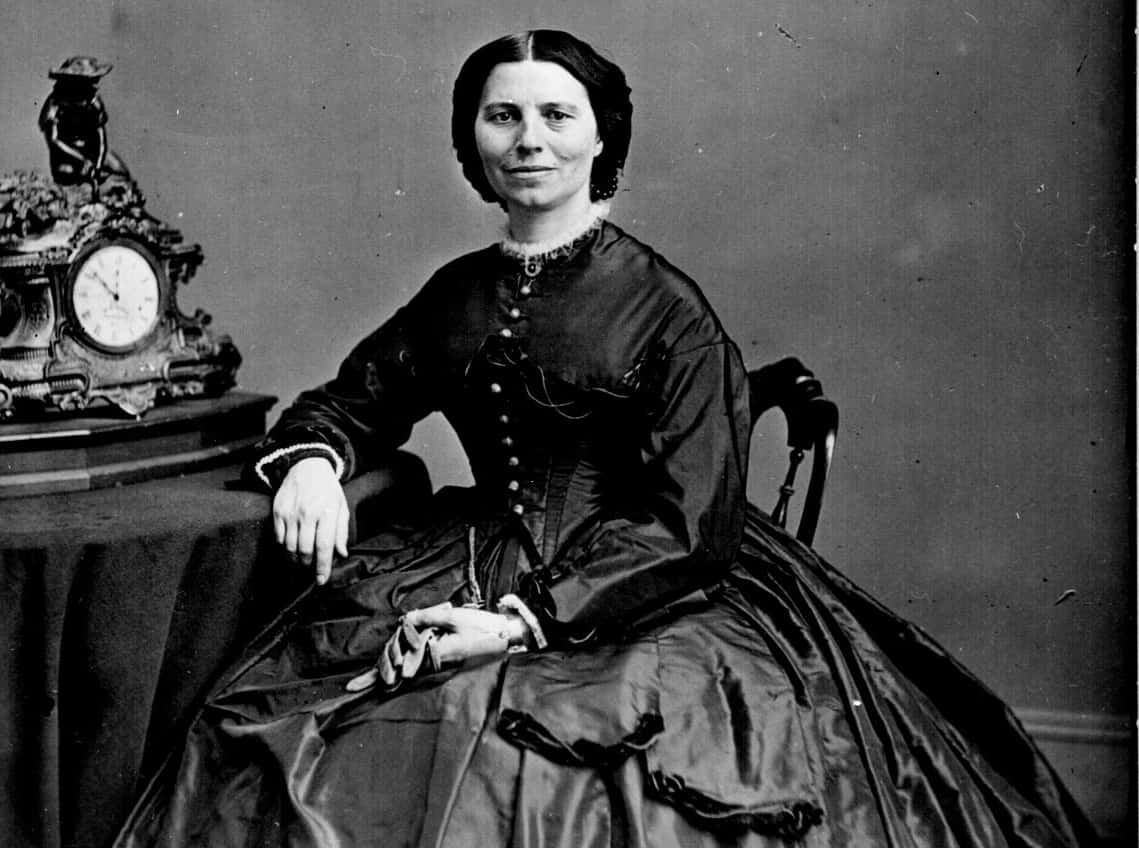 Wikimedia Commons, Mathew Brady
Wikimedia Commons, Mathew Brady
20. Unpleasant Trip
Anthony’s dedication to the lecture circuit was legendary. She reputedly once gave one of her speeches while standing on a billiard table (presumably annoying some billiard players). Her tours weren’t a walk in the park either. In one instance, she was on a train in between locations, only to become snowbound for an extended time. Unprepared for that, Anthony had to survive on a diet of crackers and dried fish!
21. Star-Struck?
One of Anthony’s admirers was “Buffalo Bill” Cody. In 1893, Anthony was personally invited to attend Cody’s show at the World’s Columbian Exposition. Anthony agreed, and when Cody began his big Wild West Show, he rode his horse in fine splendor up to Anthony, sitting in the crowd. Cody gave her an especially flourishing greeting, to which she reportedly responded with an uncharacteristic girlish glee.
22. I’ll Not be Silent!
One thing that so often plagued Anthony, and any other women during this time, was the extreme opposition to women speaking in public. At a state convention in 1852 on the subject of temperance, Anthony was barred from speaking by the chairman, despite being a delegate. When he claimed that the female delegates were only meant to listen and learn, Anthony led the women in a mass walk-out. They would organize a 500-strong convention in defiance of the attempt to silence them.
23. We Remember
Because of Anthony’s well-known support of the abolitionist cause, and also maybe because of her close ties to Frederick Douglass, it was the black population of the US that was first to honor Anthony’s memory when she died. In 1907, the African Methodist Episcopal Church in Rochester erected an elaborate glass window in Anthony’s honor, featuring the words "Failure is Impossible."
24. Many Happy Returns!
By the time she turned 80, Anthony had enough of a presence and reputation in American society that she was invited by President William McKinley to celebrate her birthday at the White House. Sadly, we couldn’t find out what the President bought Anthony for her birthday.
25. He Also Considered “The Adventures of Susan & Elizabeth”
Ken Burns is well known for his documentary series on topics such as the Civil War, jazz, and baseball. In 1999, Burns produced a 210-minute documentary on Anthony and her constant ally, Elizabeth Cady Stanton. The short title for the documentary was Not for Ourselves Alone. It was critically acclaimed and won a Peabody Award the year it was first released.
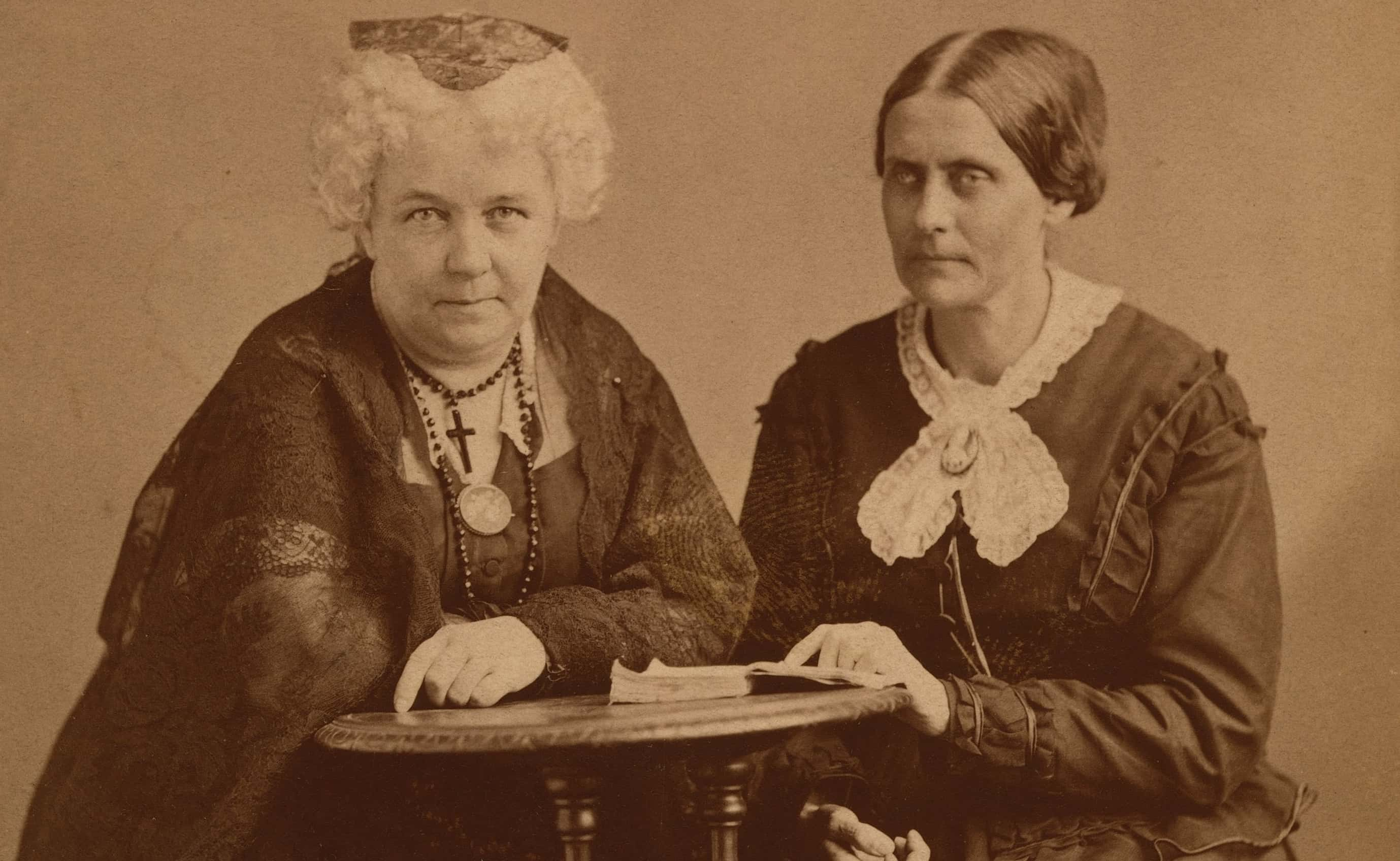 Wikimedia Commons, Napoleon Sarony
Wikimedia Commons, Napoleon Sarony
26. Avoid the Spirits
Speaking of Ken Burns, he also produced a mini-series in 2011 which dealt with the history of Prohibition in the US, which was fittingly titled Prohibition. Given her own involvement in the fight to ban alcohol, Anthony was naturally included as a subject in the mini-series.
27. Equal Opportunity Means Equal Opportunity
Despite her own religious upbringing, Anthony was highly skeptical of traditional Christians when they tried to oppose Ernestine Rose’s ascension to the presidency of the National Women’s Rights Convention on the grounds of suspected atheism. Anthony was adamant in supporting Rose, stating “I distrust those people who know so well what God wants them to do, because I notice it always coincides with their own desires.”
28. A Woman Ahead of Her Time
In the late 1850s, Anthony attempted to call for a resolution to allow people of color into public schools, as well as for women and men to be educated together in all branches of education. Keep in mind that she was saying this long before Abraham Lincoln was a US president, and the issue at the time was mostly about abolishing slavery rather than racial integration. Both of Anthony’s ideas were banned from even being discussed, presumably because a long and destructive war had to be fought for even one of those ideas to be considered.
29. This Just In!
In 1868, Anthony and Elizabeth Cady Stanton established a weekly newspaper called The Revolution. As well as reporting on politics, finance, and the labor movement, the newspaper’s primary focus was women’s rights. Its motto was “Men, their rights and nothing more: women, their rights and nothing less.”
30. Consistently True to Her Causes
Anthony’s association with abolitionist groups has been well noted. What isn’t so well remembered is how her determined stance on women’s rights led to tension with male abolitionists, who thought that this focus on women’s rights would undermine their own cause. One infamous anecdote from 1860 involved Anthony sheltering a woman who had fled an abusive marriage with her child. When William Lloyd Garrison insisted that the child needed to go back to his father, as per the law, Anthony confronted him on his hypocrisy, since he’d helped slaves escape their masters in defiance of another law.
31. Who Needs Marriage?
Anthony was often asked by journalists whether she’d ever considered marriage in her life. While Anthony gave various answers, they generally drifted back to the universal concern that she, as a woman, would be forced to give up her activism and be subservient to her husband and potential family. Despite the fact that she loved children, Anthony didn’t wish to take that risk. Marriage affected her nonetheless, as several of the women who worked alongside her in the women’s rights movement would drift away from said movement as their domestic lives became too demanding.
32. When’s the Next Adventure?
Anthony’s work resulted in her frequently being on the move. As a result, she never owned property, so she spent the majority of her adult life living in hotels or the homes of her family and friends. At the age of 71, Anthony permanently moved into the home of her sister, Mary. However, she was far from done just because she’d settled into one house. Four years later, she did a tour of Yosemite Park on a donkey, as if to confirm to the world that a “quiet retirement” was something that other people did.
33. What an Iconic Quartet!
Manhattan’s Cathedral of St. John the Divine famously contains a large sculpture featuring the likenesses of four of the 20th century’s most important figures. Despite having just lived for a few years during the 20th century, Anthony is one of the chosen figures (and really, it’s impossible to doubt her worthiness for that honor). Out of those four, Anthony is the only woman, with the others being Martin Luther King Jr., Mohandas Gandhi, and Albert Einstein.
34. The Day of Passing
On March 13, 1906, Anthony succumbed to the combined effects of pneumonia and heart failure. She was 86 years old when she died, but it’s safe to say that she’d lived the life of someone twice her age.
35. Standing True to Your Guns
One long-standing criticism of Anthony is that she refused to support the 15th Amendment. While it might seem hypocritical for such a passionate anti-abolitionist to refuse to back a law which gave black men the vote, her reasoning actually did make sense. She took severe umbrage over the fact that black women were not given the vote as well, and she didn’t want to support the half-measure. Her lifelong friend, Elizabeth Cady Stanton, put it plainly when she declared that if the word “male” was put into law, it would take women a century to get that changed to include them as well.
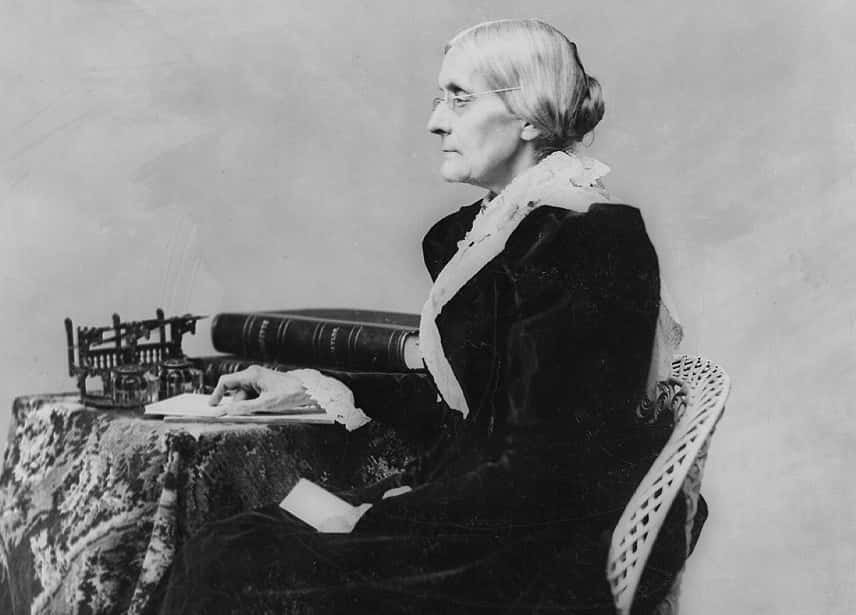 Wikimedia Commons, Taylor, S. A.
Wikimedia Commons, Taylor, S. A.
36. It’s on Now!
During the 1872 presidential election, Anthony was one of several women who managed to cast votes in Rochester, New York. Anthony’s vote was considered illegal and she was arrested, triggering a nationwide response towards the issue. Her trial, known as United States v. Susan B. Anthony, was held the following year.
37. That’ll Show Them!
In 1853, Anthony attended the New York State Teachers Association’s meeting. A teacher herself, Anthony had a few things to say, but her attempt to speak to the assembled crowd caused an uproar. The male teachers began a debate over whether it was proper to let a woman speak publicly. Fully done with this kind of attitude, Anthony proceeded to deliver one of the best truth bombs of her life: “Do you not see that so long as society says a woman is incompetent to be a lawyer, minister, or doctor, but has ample ability to be a teacher, that every man of you who chooses this profession tacitly acknowledges that he has no more brains than a woman.” We can only wish we could have seen the reactions of those men who heard her.
38. Pedaling to Freedom
If you asked Anthony what was one of the main weapons in the woman’s fight against the patriarchy, you might be stunned to hear her name the bicycle. In her lifetime, however, bicycles were a revolutionary invention, giving women the sort of mobility and freedom that they hadn’t had before. Anthony even stated that she felt bicycles had done “more to emancipate women than any one thing in the world.”
39. So It Means Nothing?
When Anthony was a youth, she and her sisters were caught up in a “great craze for middle initials.” As a result, Anthony took on the “B” between her first and last names. The “B” didn’t even stand for anything, it was just for the prestige of a middle initial. Of course, some sources contradict this by saying it was her parents who gave her the middle name Brownell, so the jury’s still out on that one.
40. Thank Goodness for Rich Uncles
Anthony’s time at boarding school was cut very short due to the Panic of 1837. In short, the Panic was a financial crisis that led to a terrible recession which affected the US throughout the 1840s. While Anthony probably didn’t shed tears over leaving boarding school, her family was forced to auction off all their possessions to make ends meet. Thankfully, an opulent uncle was good enough (and wealthy enough) to buy their possessions at said auction and give them back to the family.
41. A Fitting Name
When the 19th Amendment to the US Constitution, granting women the right to vote, was finally passed in 1920, it was known as the Susan B. Anthony Amendment in honor of Anthony’s long life of hard work devoted to such advancement for women.
42. You Will Hear Me Roar!
Despite suffering the indignity of being arrested for trying to cast a vote in her nation’s election, the trial has often been held up as one of Anthony’s finest moments. When she was asked if she had anything to say during the trial, Anthony proceeded to give an impassioned speech denouncing the fact that she was denied a trial by jury, that she wasn’t legally allowed to vote despite being a human being and an American citizen, and she made her points despite the judge’s attempts to silence her. When she was fined $100, Anthony bluntly refused to pay, daring them to jail her so she could take the case to the Supreme Court. The judge backed down, unwilling to let her go to the SCOTUS with this controversial case, so she lived with defying the voting laws and never paying her fine for it.

